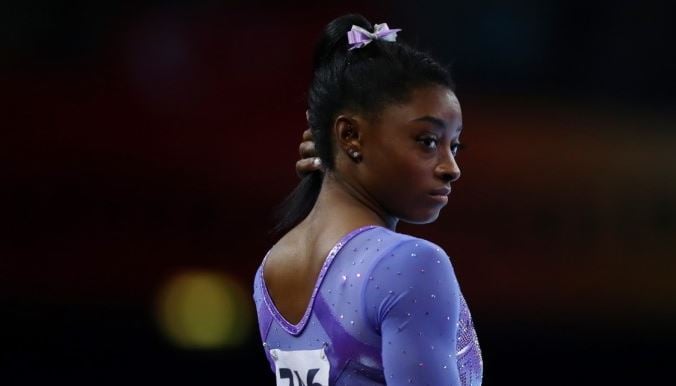50 Best PG-13 Movies on Netflix Right Now
While it’s true you won’t run out of options on Netflix, it can be tricky to find titles that cater to your specific needs. Netflix’s own algorithm isn’t that helpful either, because you just know it puts its original movies above everything else, regardless of whether they’re objectively good or not. That’s where we come in. agoodmovietowatch is a portal for highly-rated yet little-known movies. And in this specific list, we round up our best recommendations rated PG-13 on Netflix, in case you’re in the mood to watch something with your teen.
Jump to the top 10:
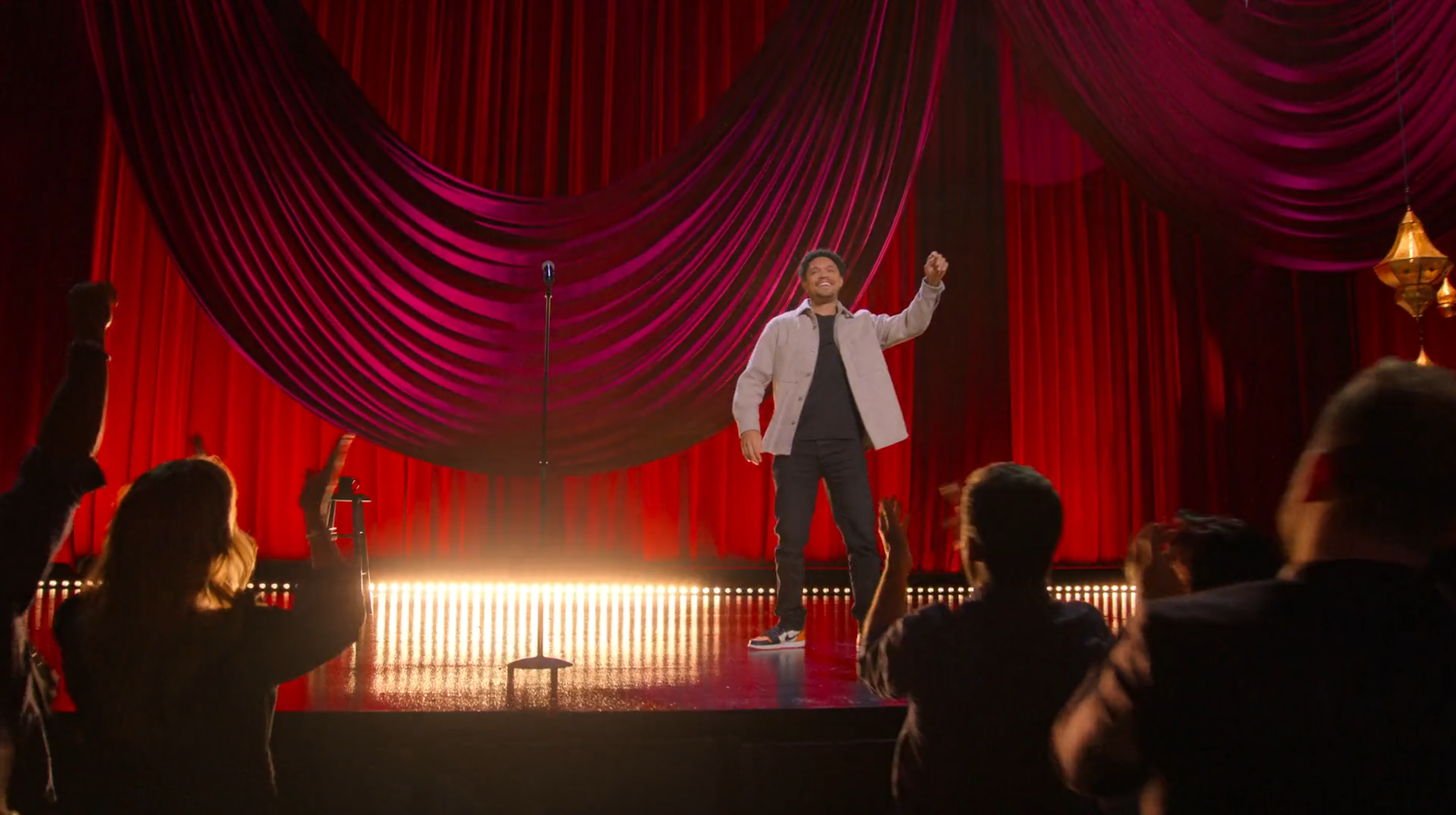
For the entirety of Where Was I, Trevor Noah is comfortably in his pocket—speaking to an audience that’s clearly familiar with his style and his views (if the respectful silences and occasional cheering are any indication) and branching off into sharing more serious facts between the jokes. And Noah’s style is clearly refined, as he speaks clearly and sticks to a coherent structure at all times. But at a certain point his level of comfort here also leads to punchlines that are too easy or unsurprising, with too much focus placed on the kinds of voices and accents he can put on rather than the content of what he’s saying. Noah remains a strong entertainer, but when you know how scathing he can get, this feels more like a warmup round.
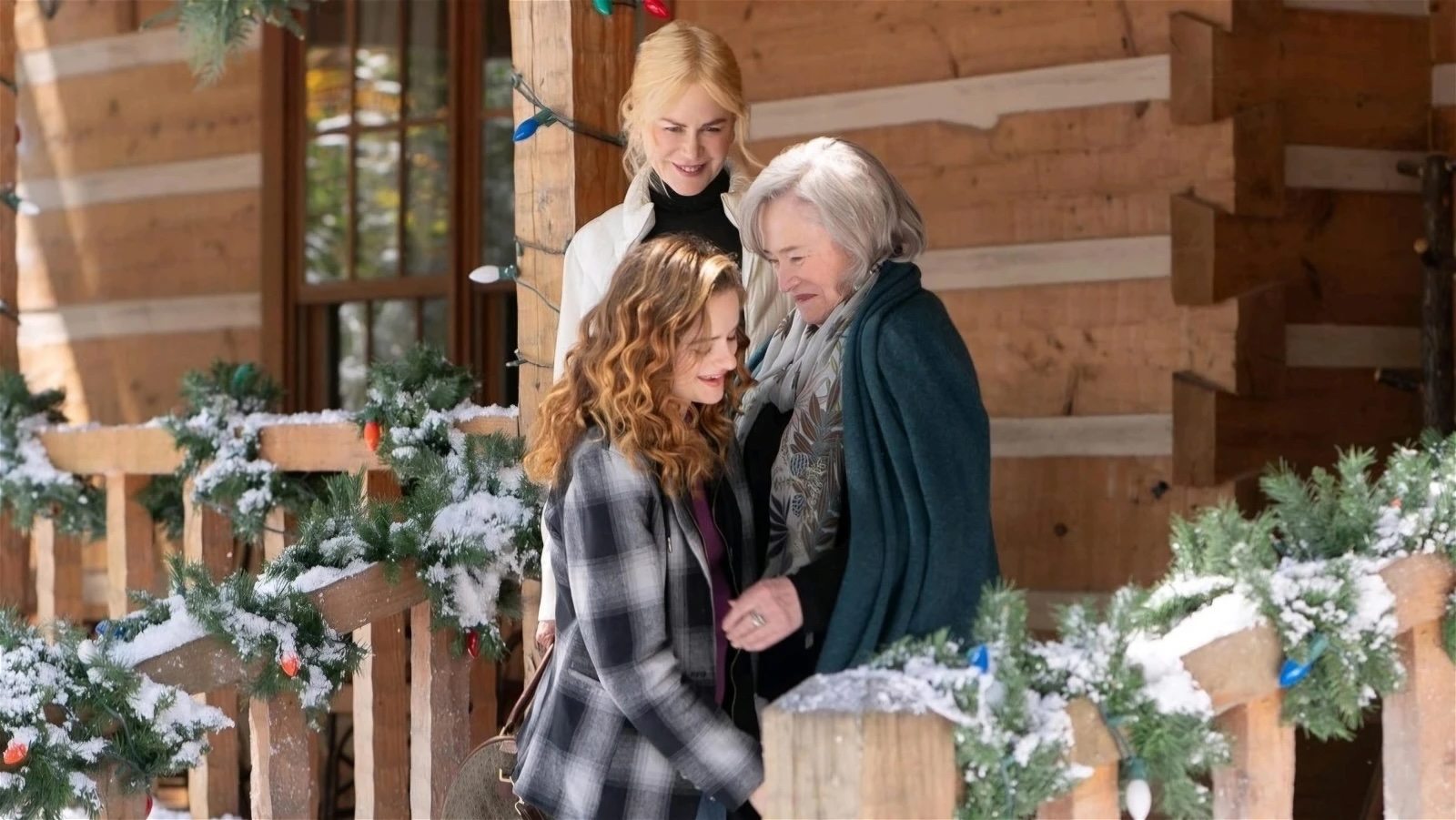
In the grand scheme of streamer romcoms, A Family Affair is not too bad. Like The Idea of You before it, the film explores what it means to find love as a woman late in life while proving that it can be just as exciting and steamy as any other affair. The film is even occasionally funny, with Efron’s vain character banging out punchlines like “It’s one of a kind! I only have two of these!” But there are too many lapses that are hard to ignore, such as the glaring lack of chemistry between Efron and Kidman, and the sheer unlikeability of King’s Zara. Yes, they acknowledge her narcissism multiple times, but it doesn’t change how exhausting she can be, and how rushed her growth was. In fact, none of them seem to really develop, except Brooke, who is the most realized character in the film. A Family Affair is at its best when it’s parodying the franchise-hungry film industry and when it’s discussing the passions and pleasures of late womanhood. Unfortunately, they often feel like two separate films, and the filler in between feels exactly like that: filler, with nothing new, important, or forgivably funny to say.
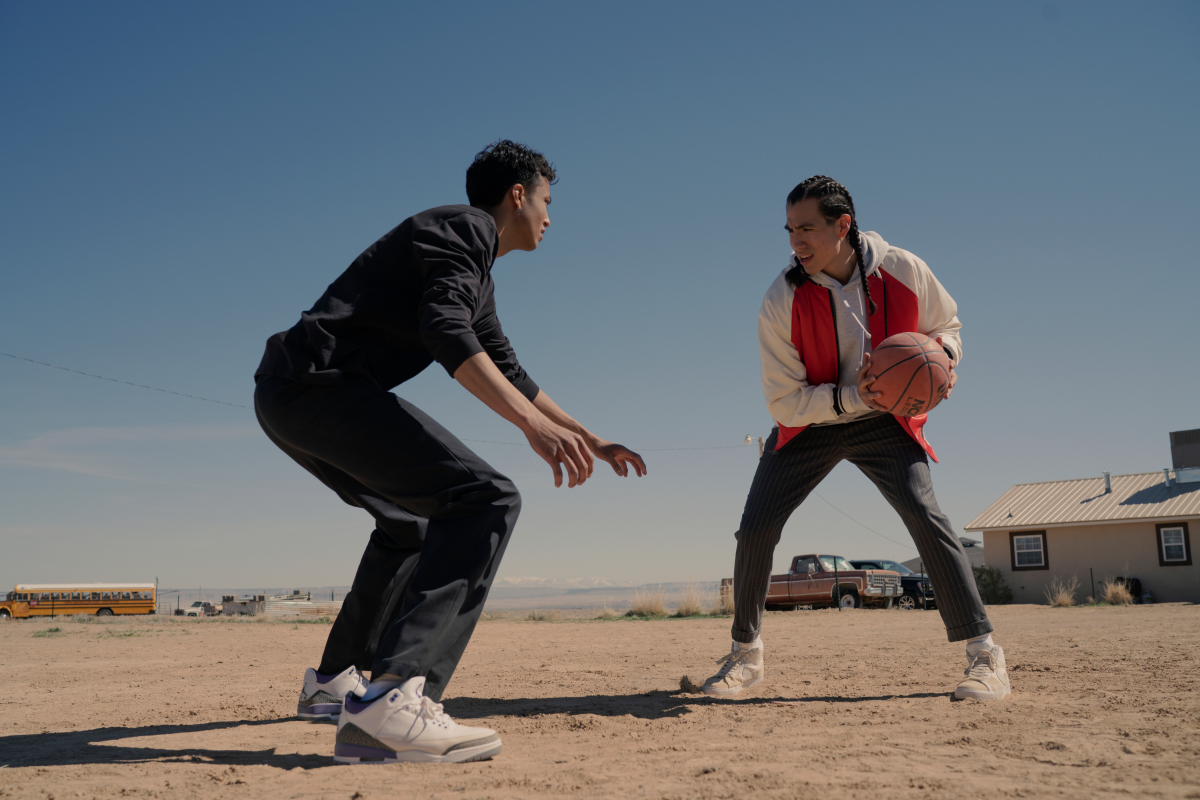
In most instances, Rez Ball isn’t all that different from traditional sports dramas. It features a down-on-their-luck high school basketball team–the Chuska Warriros– that gets better through sheer perseverance and teamwork. But as the title suggests, the Warriors play a slightly different kind of game. Rez Ball, according to the film, is faster and more points-focused. And the way the film lets the players (and us, the audience) learn about it by connecting the team with Navajo culture and practices is ingenious. As an intimate showcase of rez life, the film shines. But as a drama, it falters. The acting is rusty and uneven (though shoutout to Devin Sampson-Craig and first-timer Kauchani Bratt for getting it right), and the direction feels similarly wooden. The film is a promising entry, it just needs more time and polishing to be great.

As much as the Alabama-bred stand-up comic doesn’t fit into the stereotype of someone with an online presence, Dusty Slay’s comedy special can’t help but feel like you’re scrolling through the Twitter feed of someone’s funny but incoherent (and most likely high) thoughts. There isn’t much connective tissue to be found in Workin’ Man, which doesn’t necessarily weaken his jokes—many of which are actually these amusing, absurd observations on everyday life—but definitely makes all the little silences feel much longer, and leaves you looking for some sort of primary theme to really bring the show home. Still, the fact that a self-proclaimed stoner is actually this normal and unassuming (as opposed to a few other comics who can get dark and aggressive with their drug-related content) is pretty refreshing, all things considered.
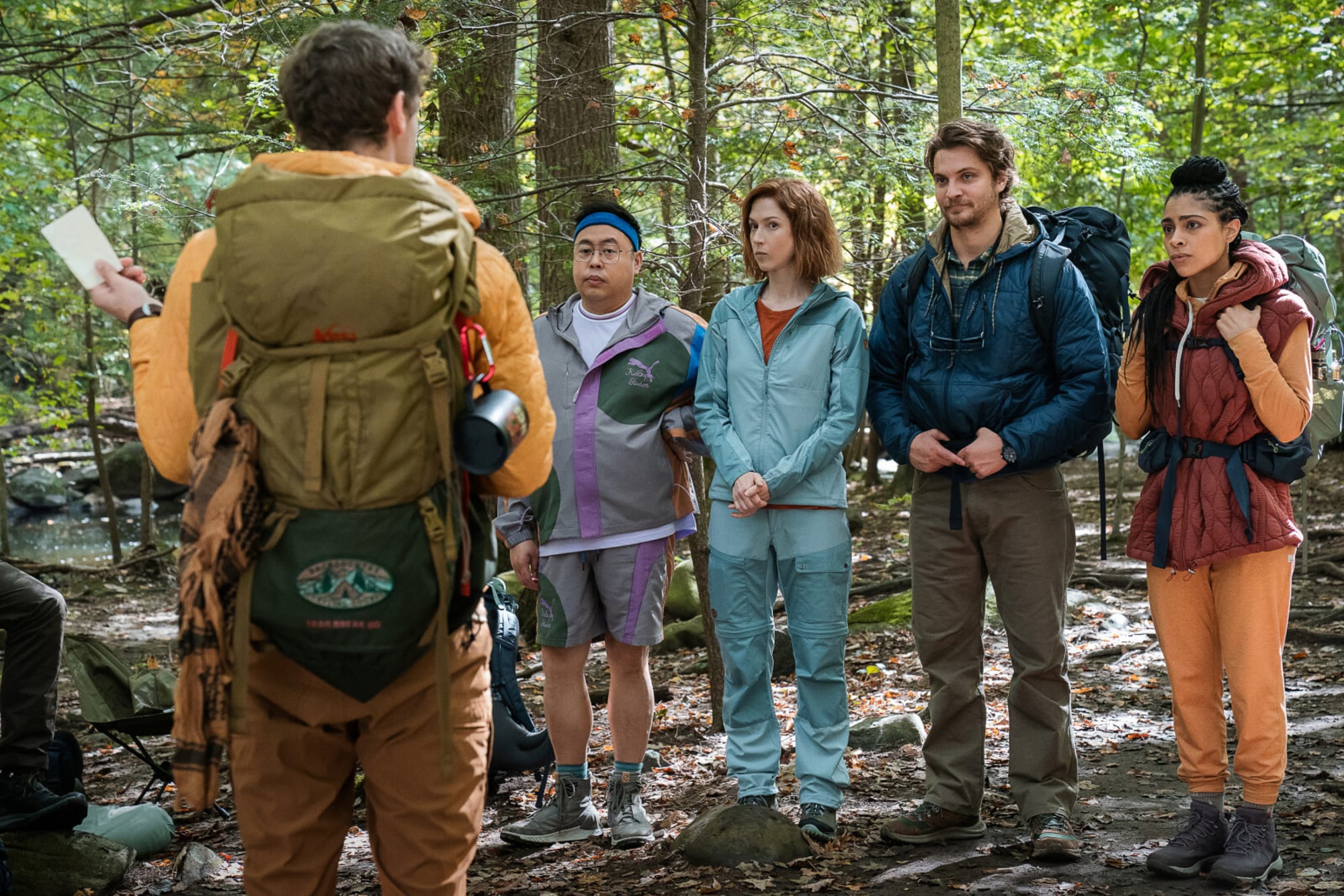
Sanitized, predictable, and utterly cheesy, Happiness for Beginners feels like one of those TV movies made to fill the time in between the stuff people actually watch. It’s baffling how wasted Kemper is here; the actress’ signature pep, which was fully utilized in shows like The Office and Unbreakable Kimmy Schmidt, is nowhere to be found. She plays a grump who, by the sheer power of love and friendship, transforms into a happier person, but even then we see no trace of Kemper’s infectious energy. It was hinted that Kemper’s character, Helen, struggles with depression, but the film is either unwilling or incapable of digging further and offering Helen actual solutions, like therapy or medicine. The movie’s saving grace is the ensemble behind Kemp, who thankfully are able to exercise their comic chops. Nico Santos, Ben Cook, and Gus Birney deserve a special mention for their full-bodied and entertaining performances.
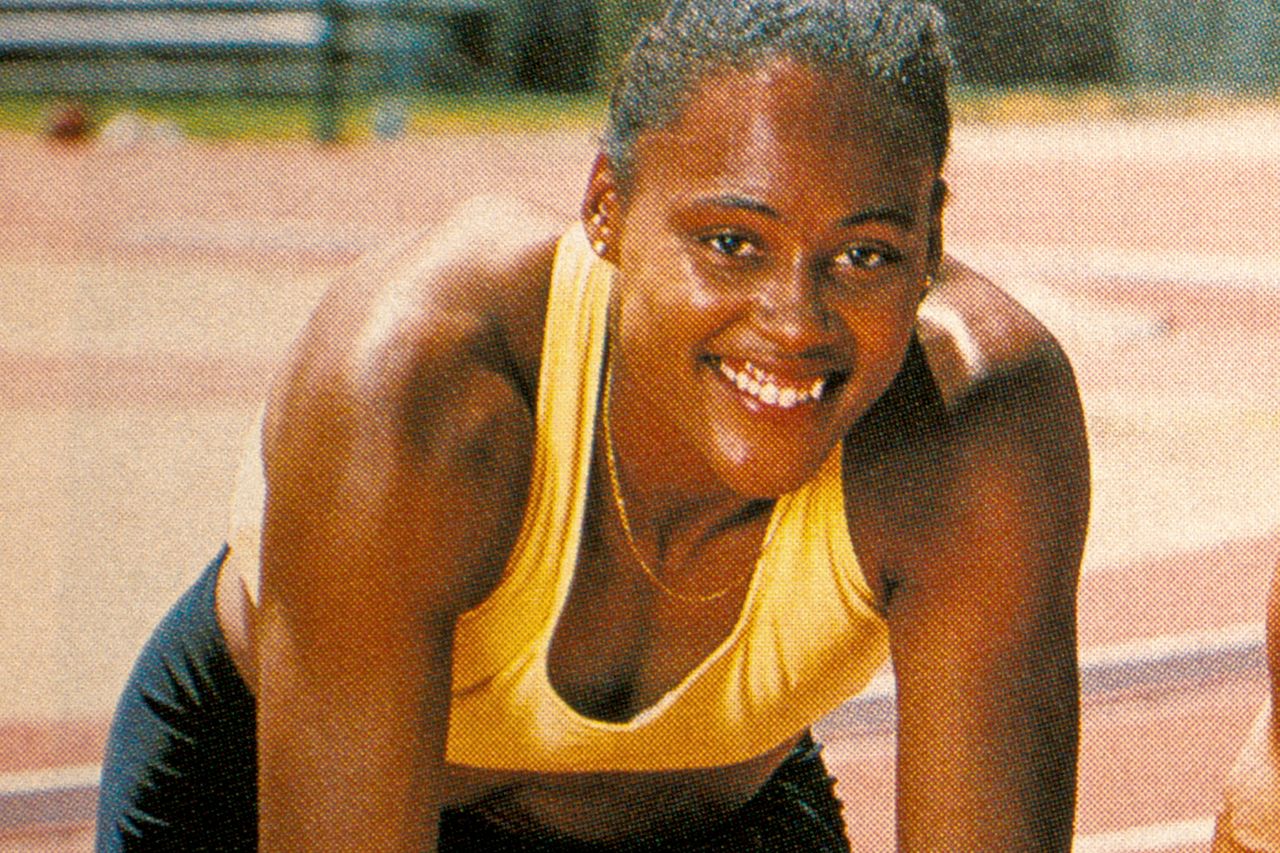
This installment in Netflix’s series of sports documentary films, Untold, relies too heavily on information to pad its runtime. Even with intriguing parallel storylines that explain what Victor Conte was doing to secretly deal performance-enhancing drugs, and what investigators were doing to try and catch him, the story begins to repeat itself, forgetting to place more emphasis on analyzing this information and finding personal insights into the BALCO scandal. That said, Victor Conte himself is admittedly a fascinating criminal, seemingly remorseful for the lives and careers he’s damaged, but still fascinated by the idea of synthesizing substances to push sports beyond their physical limits. By the end, there’s a real moral grayness to this whole ordeal, putting into question what some athletes’ goals really are, and whether or not certain sports organizations willingly play along with fraudulence or not.
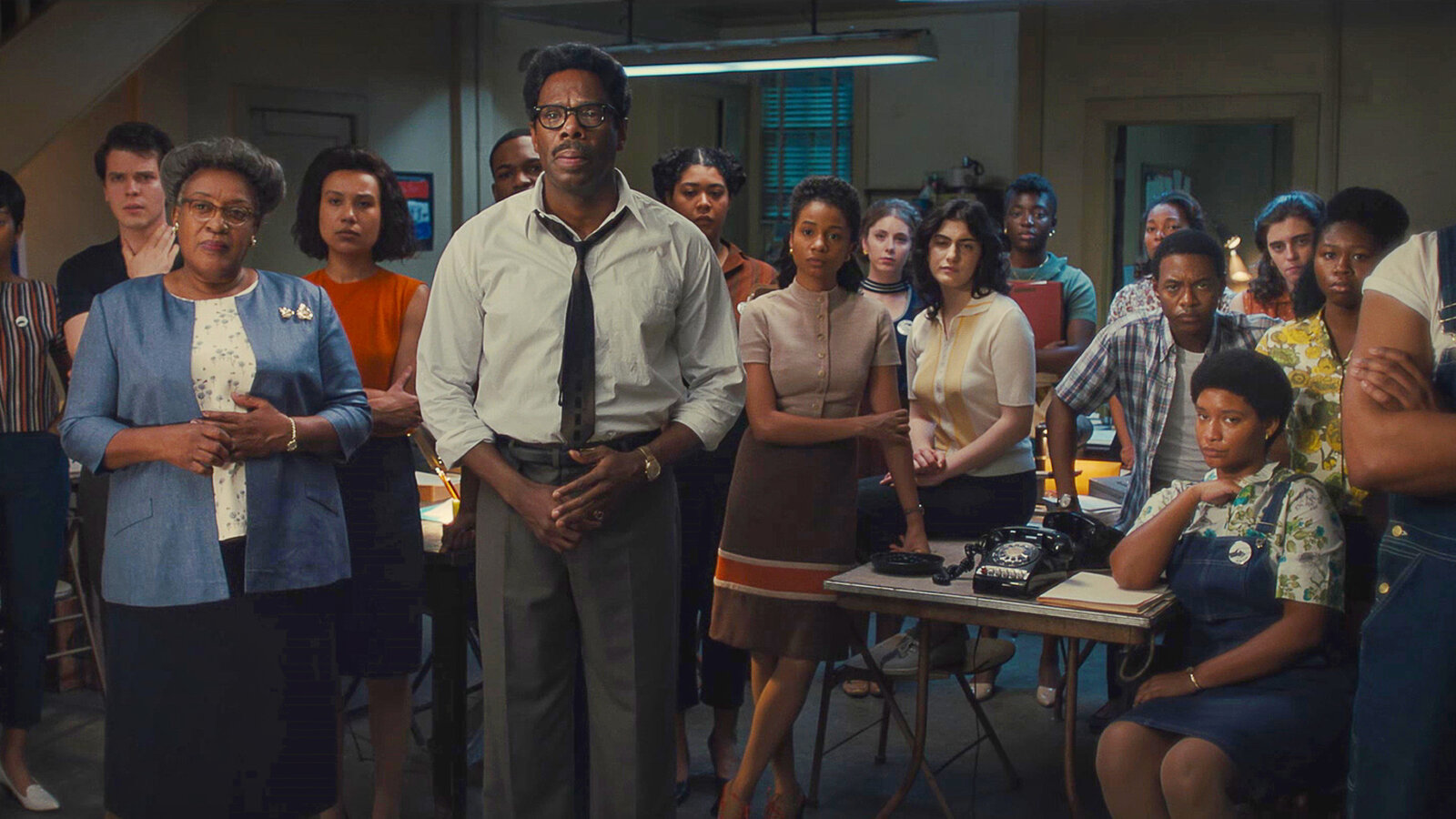
An unsung hero of the civil rights movement gets the customary Oscar bait treatment in this biopic. Though he was instrumental in organizing the historic March on Washington — which helped force the US government to enshrine civil rights — gay Black activist Bayard Rustin isn’t the household name his peers are. In an inversion of that narrative, figures like Martin Luther King appear here as supporting characters to Colman Domingo’s Bayard.
Domingo’s energetic, commanding performance holds the center of the film, but he’s ill-served by the formulaic approach to storytelling that unfolds around him. More than a few scenes feel like they were written, directed, and performed with an eye to making awards ceremony clips, giving the film a disjointed, self-aware air. And yet, for all the limits of its by-the-numbers approach, Rustin does manage to pack in glints of insight. By virtue of who he was, Bayard will never not make for a compelling central figure — so even lackluster filmmaking can’t sap this inherently radical material of all its power. Though not without its flaws, then, the film is valuable for the light it sheds on the polarising effect Bayard’s identity as a gay Black man had within the movement and the intersectional depths he nevertheless brought to it.
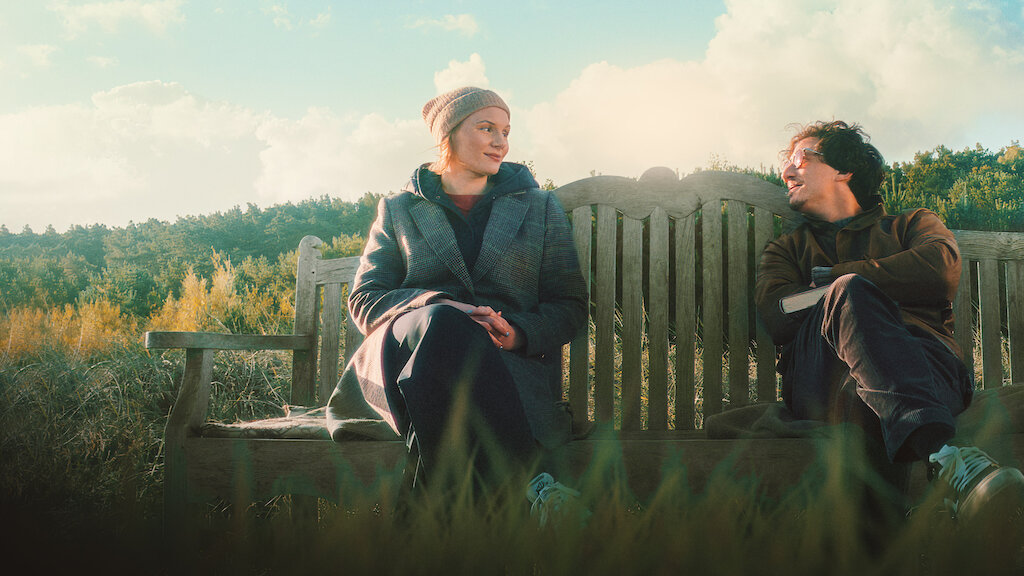
Two people with different thoughts on love discover a common ground: they’re both anti-romantics. Realizing they got off on the wrong foot, they spend more time with each other and bond over realistic ideas of modern love. At one point, Maria (Rosalie Thomass) and Karl (Laurence Rupp) even diss romantic comedies for their cheesy music and naive understanding of fate and destiny. Their conversations are engaging and thoughtful, even and especially when they oppose one another. But just when you think you’re watching something smart and novel, Maria and Karl fall into the same implausible trappings they claim to hate. Suddenly, the film turns soft and transforms into the romantic comedy it once criticized. If only it had pushed into anti-romance territory even further and allowed Maria and Karl to truly hash out their differences, thorns and tension and all, then this could have been a truly interesting romantic film. Instead, it’s a standard romantic comedy that’s worse off for pretending to be above the genre, even though it’s really not.
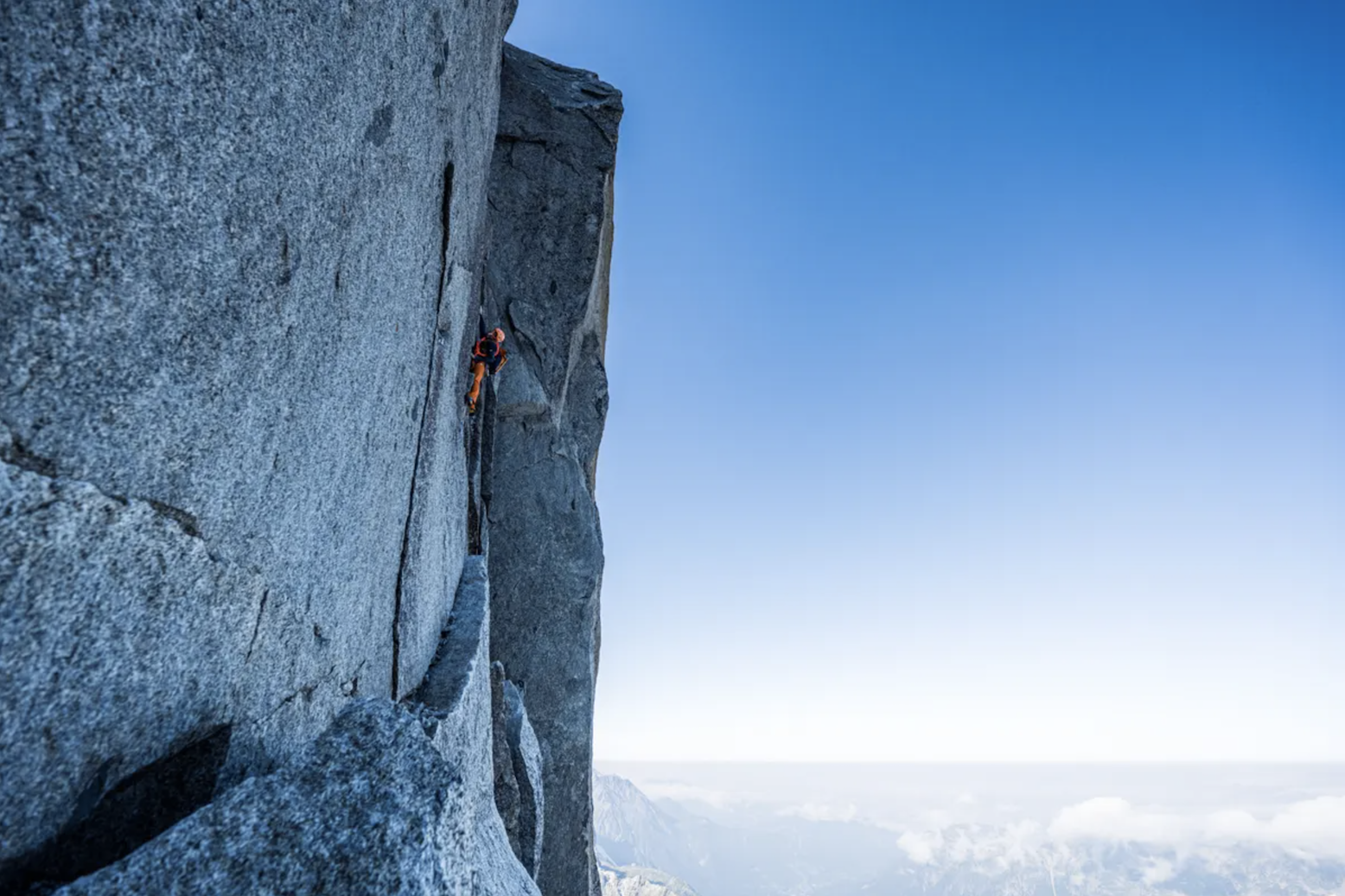
Pushing an already extreme activity even further beyond its limits, Ueli Steck and Dani Arnold have became the world champions of speed climbing—a variation of the sport that places much greater importance on direct competition over communing with nature. It’s fascinating to hear what drives Steck and Arnold to courting death like this, and to see how their vastly different backgrounds and processes have still made them equals in the field. The documentary eventually runs out of ideas, however, as it clumsily shifts tones leading into its last third, and concludes abruptly without much synthesis of everything that had come before. It’s still a worthwhile adventure whether or not one is into climbing; it’s just disappointing that this story of such a unique rivalry settles into a more generic rhythm by the end.
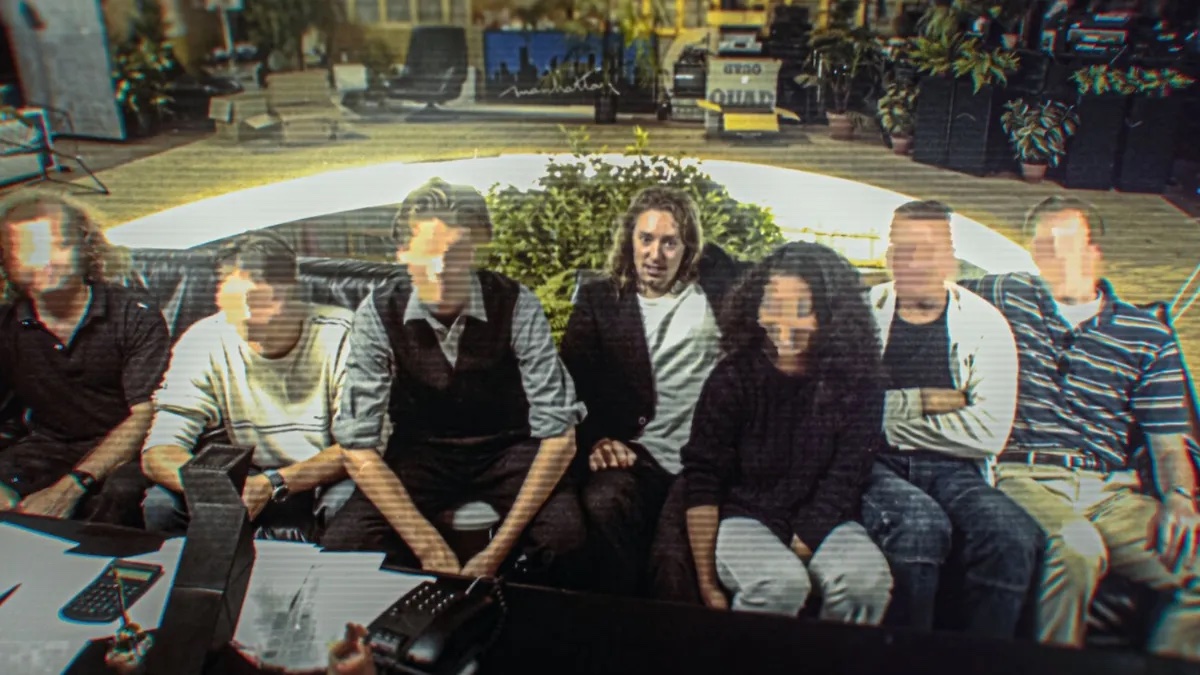
If you’re expecting a twisty and thrilling look at a dangerous group of hackers who hide deep within a military bunker in Europe, and who refer to their entire operation as “straight from a James Bond movie,” then you might be disappointed with Cyberbunker, a dragging documentary that relies too heavily on talking heads for momentum. It takes 30 minutes to establish the relevance of these figures, and a full hour before it finally explains the actual crime and wrongdoings they’re complicit in. The most interesting parts of the case, like the FBI’s involvement, Cyberbunker’s links to the propagation of child pornography, and the group’s advocacy on internet privacy, are completely buried beneath a stack of unnecessary tidbits. I appreciate the effort of the filmmakers and the interviewees coming together to make something decently informative, but by the end of it, you’re left wondering whether all this was better off as a Wikipedia article.
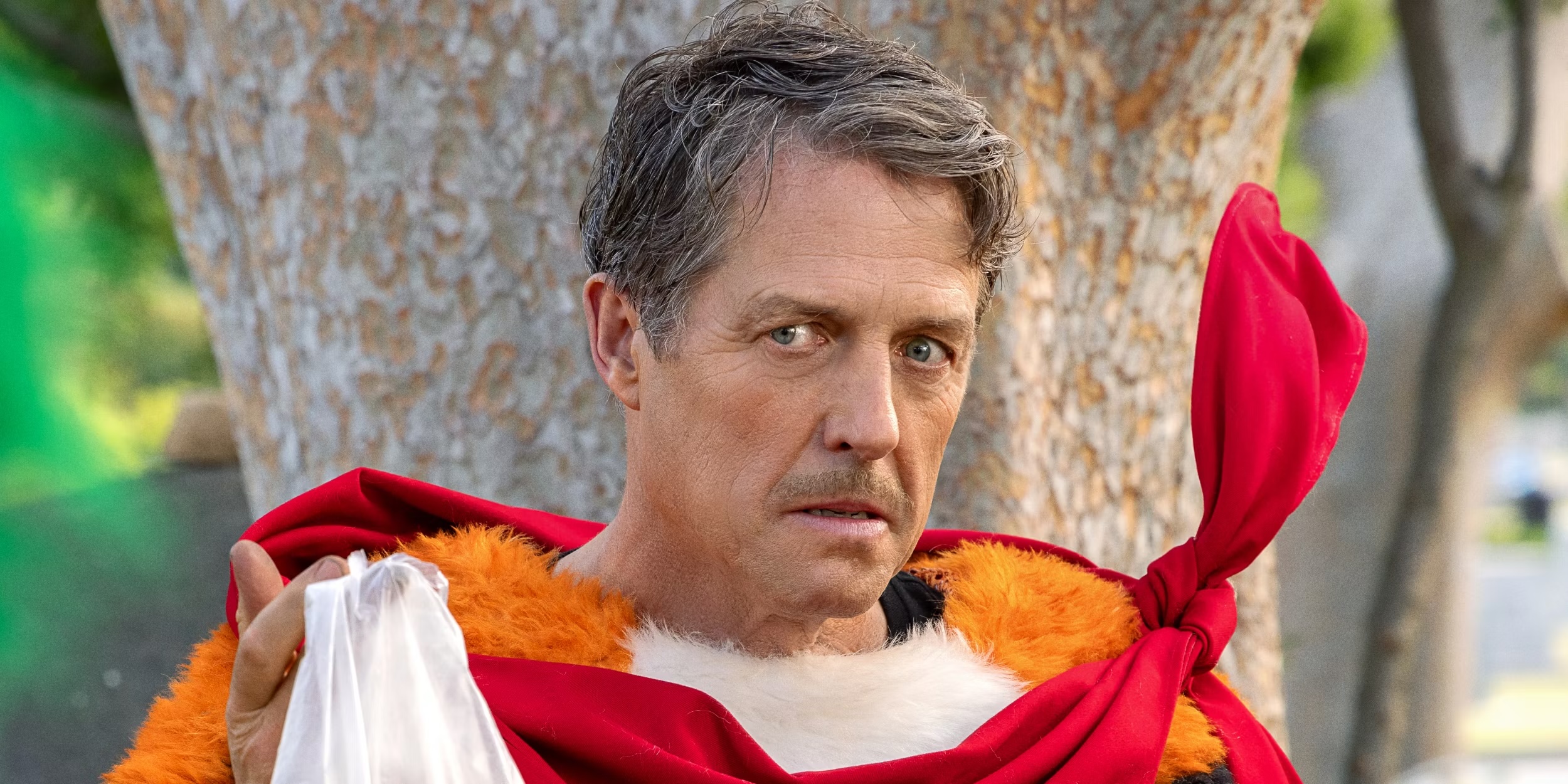
Unfrosted is the kind of bonkers treat filled with movie references, physical gags, and too-many-to-count stars that’s easy to sink your teeth into and enjoy for what it is—in the beginning, that is. It’s helped by snappy visuals and a colorfully accurate rendering of the ‘60s too. But then it wears you down with the same jokes and flimsy story, until eventually, you can’t help but ask: are you really dedicating an hour and a half of your life to watching *check notes* a Pop Tart get made? The filmmakers don’t make it any deeper than that sounds, sadly, even though there’s more drama and flavor involved in the real-life competition between Post and Kellogs. I’m not saying Unfrosted is a bad film—to be honest, I laughed out loud in many parts—just that you won’t be able to get over how overbudgeted and ultimately hollow it is.
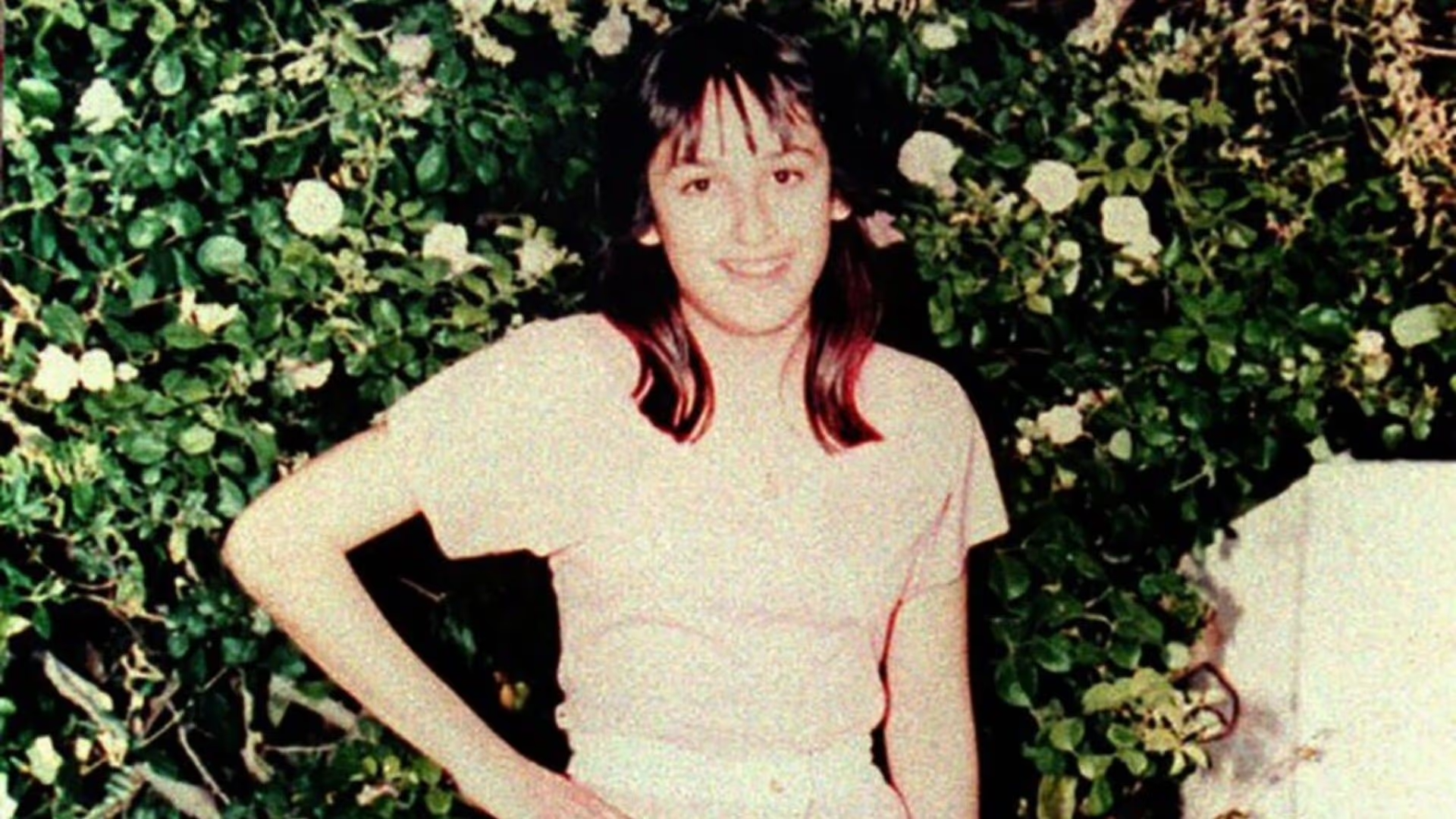
It’s heartbreaking that the case of Maria Soledad is as gruesome as it is common. We’ve all heard of or know about a woman who was raped, strangled, and beaten to death for no other reason than her gender. But even though Netflix’s Breaking the Silence tells Soledad’s story well enough, with detailed research and in-depth interviews, it’s ultimately hard to tell it apart from the hundreds of other true crime documentaries the streamer has produced. A cynic would say that Netflix’s interests lie not in advocacy or justice, but in riding the true crime fad. But a more hopeful viewer will want to believe in the film’s truth and stance against femicide. If you’re the former, then Breaking the Silence won’t do much for you. But if you are latter, and I kind of hope you are, then this documentary will be heartbreaking, frustrating, and more importantly, inspiring.
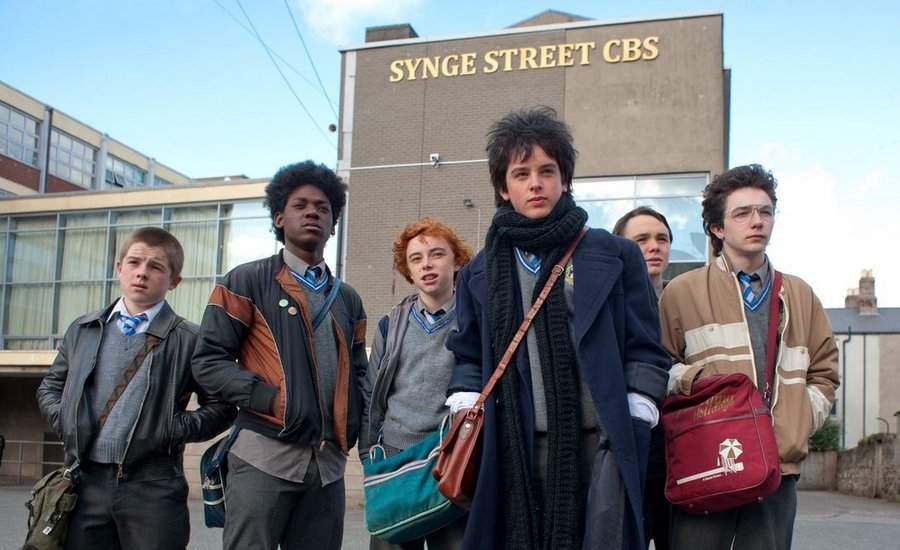
In 1980s Dublin, a young Irish catholic-school boy, whose family is facing financial problems starts his own band with the sole objective of impressing a mysterious femme fatale. The film takes you on a beautiful and witty journey through the band’s path to success and our protagonist’s quest in conquering his love all to the rhythm of some of the biggest 80’s pop-rock hits and the band’s own original soundtrack. Without a doubt this film is the long awaited passion project of filmmaker John Carney (Once, Begin Again).
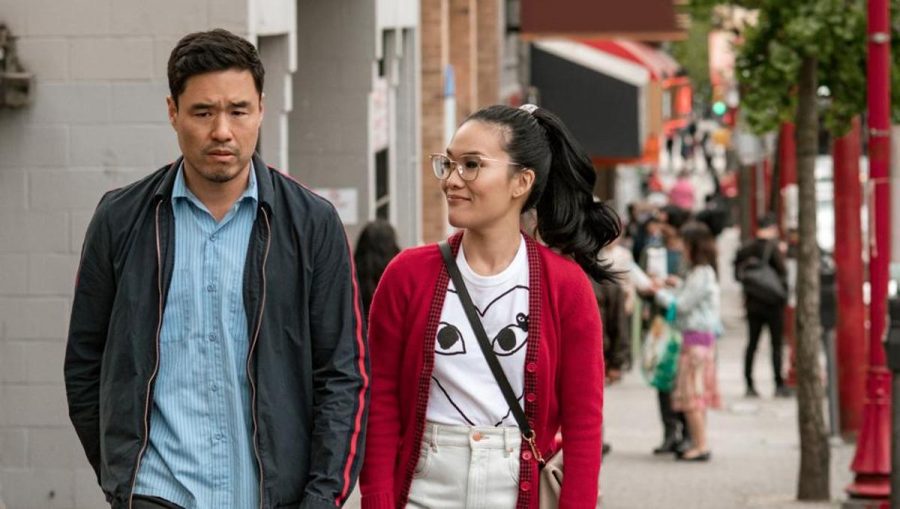
An innocent-fun movie, Always Be My Maybe is a lovely thing to turn your brain off to. Sasha and Marcus are high-school best friends who dated briefly and went their separate ways. 16 years later, they meet again – Sasha is a famous chef, and Marcus is still living with his dad.
What really makes this movie is the writing from Ali Wong and Randall Park, who also play the two leads. The dialogue is sharp, believable and smart – going as far as covering themes of gender and parenting. But also, because a rom-com about two Asians from San Francisco is not exactly a common occurrence, the characters are fresh, the jokes are fresh – everything is fresh.
Watch out for the character who plays Marcus’ dad, he plays the character of an overly honest Korean dad perfectly. And also watch out for Keanu Reeves, he plays a crazy version of himself!
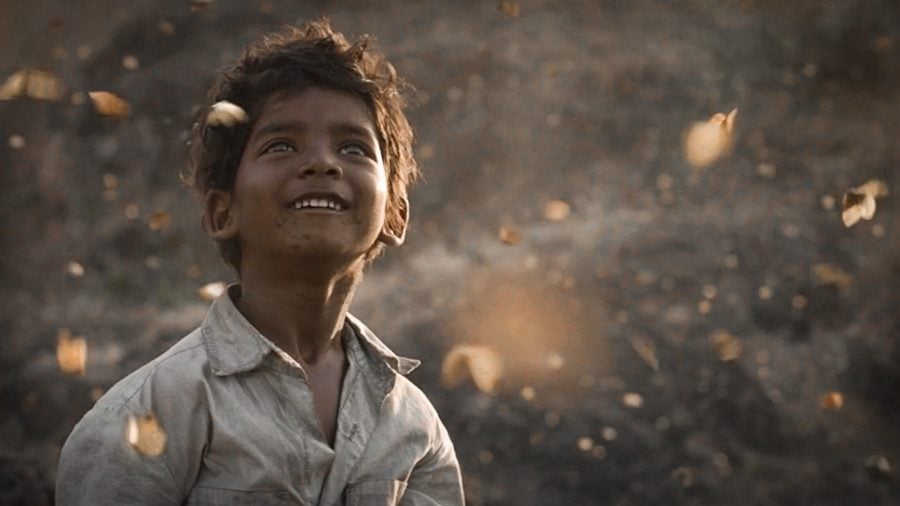
Lion is the award-sweeping movie based on the true story of a kid in India who gets lost in a train and suddenly finds himself thousands of kilometers away from home. 25 years later, after being adopted by an Australian couple, he embarks on a journey through his memory and across continents to reconnect with his lost family. Dev Patel plays Saroo, and Nicole Kidman plays his Australian adoptive mother. Two truly amazing performances that will transport you to the time and place of the events, as well as its emotions spanning tear-jerking moments and pure joy. An uplifting, meaningful, and beautiful movie.
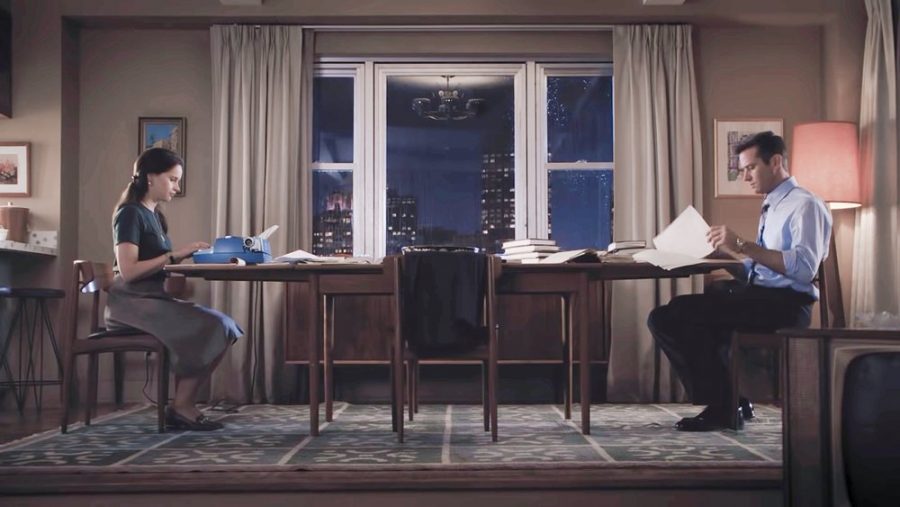
An uplifting and inspiring movie with Felicity Jones and Armie Hammer. Jones stars as Supreme Court Justice Associate Ruth Bader Ginsburg in this biopic centered around her hallmark case against sex-based discrimination. While it doesn’t feel like it truly conveys the power of Ginsburg’s story, her determination, or all the odds that were stacked against her, it serves as a mellowed-down preview of her remarkable story. Watch this if you’re in need of a good dose of inspiration.
A smashing box office success and an Oscar nominee for Best Visual Effects, Ready Player One has already proven itself to be a smart and surprisingly adequate rendition of today’s techno-anxieties that underpin the use of VR in popular culture. Through its elaborate portrayal of a magnificent utopia—a world where you (your avatar) can be anything you want—the film acts as an antidote to what many would call the end of cinema. Fears about VR interfering with filmmaking and the potential dismantling of film worlds through that particular kind of “virtual realism” are countered by the ever-expanding possibilities of OASIS. Spielberg is anything but cynical here and even if the main characters, Wade and Art3mis, are teenagers who have been born in a world beyond salvation, there is still hope in their idealism. While they find themselves up against the CEO of an evil corporation called that seeks to overthrow the OASIS, the battle is not as uneven as it seems. Even now, being the giant of sci-fi film that he is, Spielberg still believes in the youth, as he always has.

Based on the story “Death Takes A Holiday”, Brad Pitt plays Death in this romantic drama. Death comes to take Bill Parish (played by the fantastic Anthony Hopkins) but gives him a last few precious days so that Death may roam the earth disguised as a human, looking for a reason to live. The movie is full of many quotable lines that really make you think about life, death, and what you have done during your time here.
“You wanna know? I’ll tell you. You’re looking at a man who is not walking through the valley of the shadow of death. He’s galloping into it. At the same time, the business he built with his own hands and head has been commandeered by a couple of cheap pirates. Oh, yes! I almost forgot. My daughter’s fallen in love with Death.” –William Parrish.
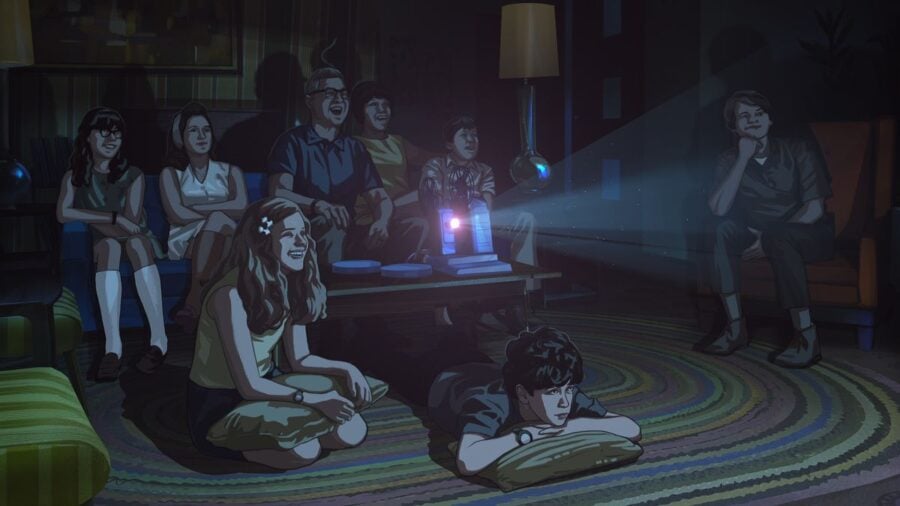
Narrated by the familiar voice of Jack Black, Apollo 10 ½ is a throwback story told with admirable specificity and imagination. Black plays a grown-up Stan, who looks back on his younger years with a mix of fondness and wonder: how did they get away with the things they did then? American suburbia in the 1960s was both loose and conservative, caught between a generation holding on to the reins of the earlier century and one eager to launch into the next.
Stan, as the youngest child of a big, rowdy family, gives us a charming look into the times, as well as a projection of his own fascination: Apollo 11 and the space age. He inserts himself in this monumental narrative and generously brings us along in his fantasy. Sometimes it’s hard to tell whether Stan’s recruitment by NASA is actually fact or fiction, but that’s part of the fun, especially since Stan himself doesn’t seem to mind at all.
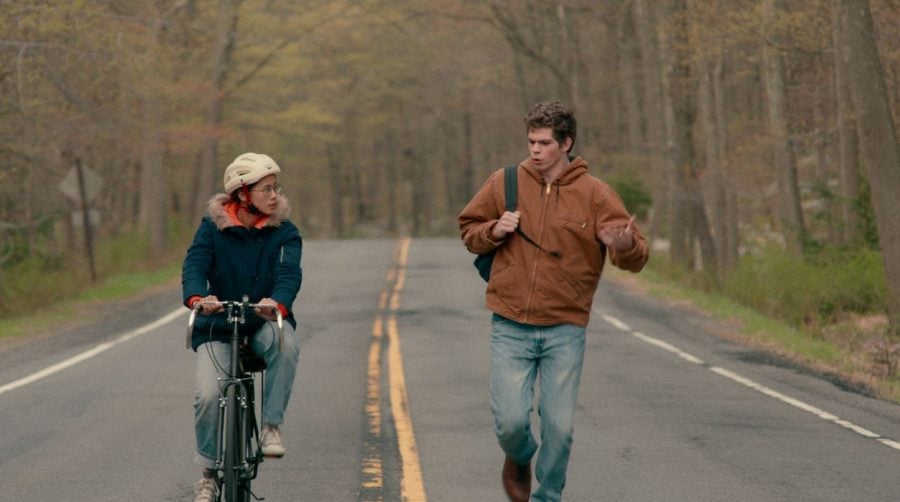
This lovely romance is about Ellie, a straight-A student who takes money from a classmate, Paul, to write love letters for him. Ellie does this to help with the household bills but there is one big problem: the girl Paul is in love with is also the girl Ellie has a crush on.
This might seem like the set-up for a standard Netflix comedy (and if you’re thinking Bergerac, you’re right, it is based on the famous play) but as the introduction of the film reads: “This is not a love story … not one where anyone gets what they want.”
It is in fact, personal work from a brilliant and quality-focused director, Alice Wu. Her last movie, Saving Face, a pioneering lesbian romance set in an Asian American context, was released a long 15 years ago.
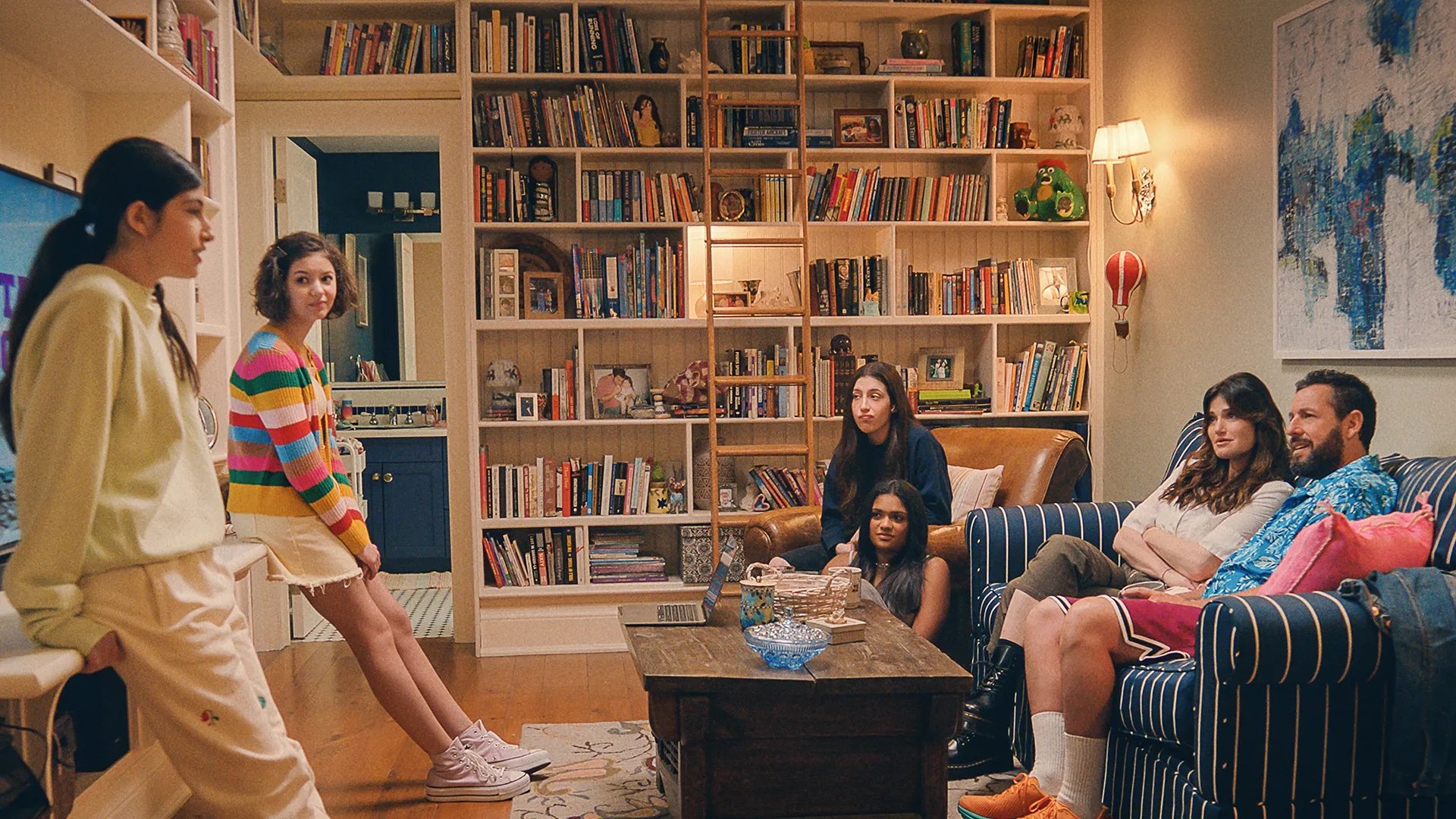
Funny, refreshing, and heartwarming, You Are So Not Invited to My Bat Mitzvah gives the seminal girlhood film Are You There God? It’s Me Margaret. a Gen Z update. Stacy and her friends are constantly on social media and watch each other for potentially politically incorrect terms, but they also struggle with period pain, crushes, and falling out with former friends. It’s a confusing time in a kid’s life, and You Are So Not Invited, like Are You There God? before it, honors that. It never condescends, never strays far from the child’s perspective. It’s jubilant and heartwarming, and (to me at least) it’s always fun to see real-life families play themselves in movies. Judd Apatow experimented with this structure in his semi-autobiographical films Knocked Up and This Is 40, which first gave us a glimpse into his daughter Maude Apatow’s acting prowess. I feel You Are So Not Invited will do the same to its young star Sunny Sandler, whose effortlessly funny and charming performance will surely carve a path for a promising career in the future.
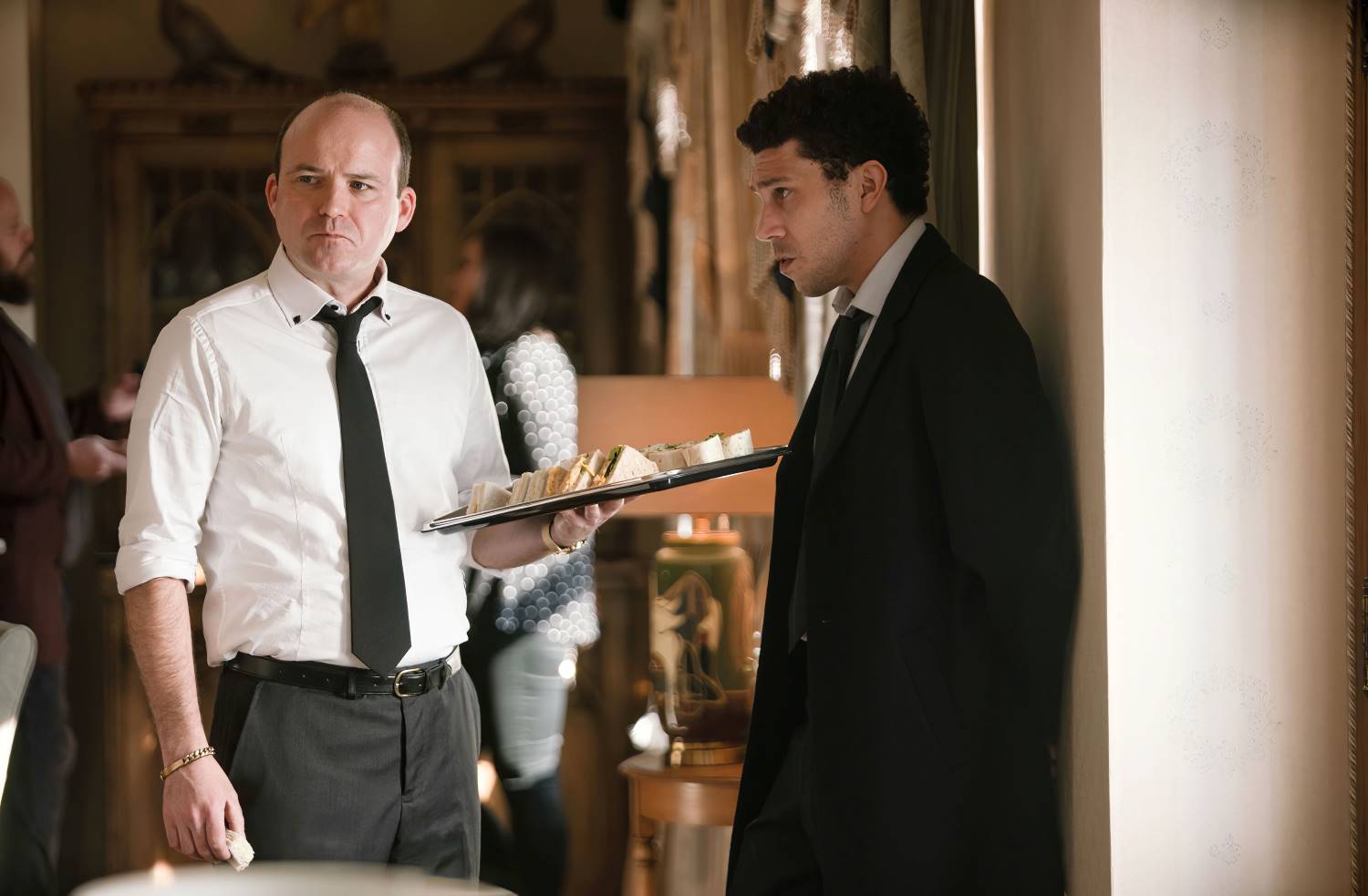
Bank of Dave is a simple but well-told film that feels utterly satisfying from start to end. Dave is the little guy who only wants to give back to his community, but stopping him from achieving his noble goals are the big guys in suits with vested interests and too narrow a focus to appreciate the good that Dave is after. The film is David versus Goliath, countryside versus cityside, socialist versus capitalist (or, if you like, ethical capitalism versus unethical capitalism). You know who will triumph in the end, but that doesn’t detract from the film’s overall enjoyability. The dialogue is smart and stirring, and you can’t help but root for the film’s small heroes to win big.
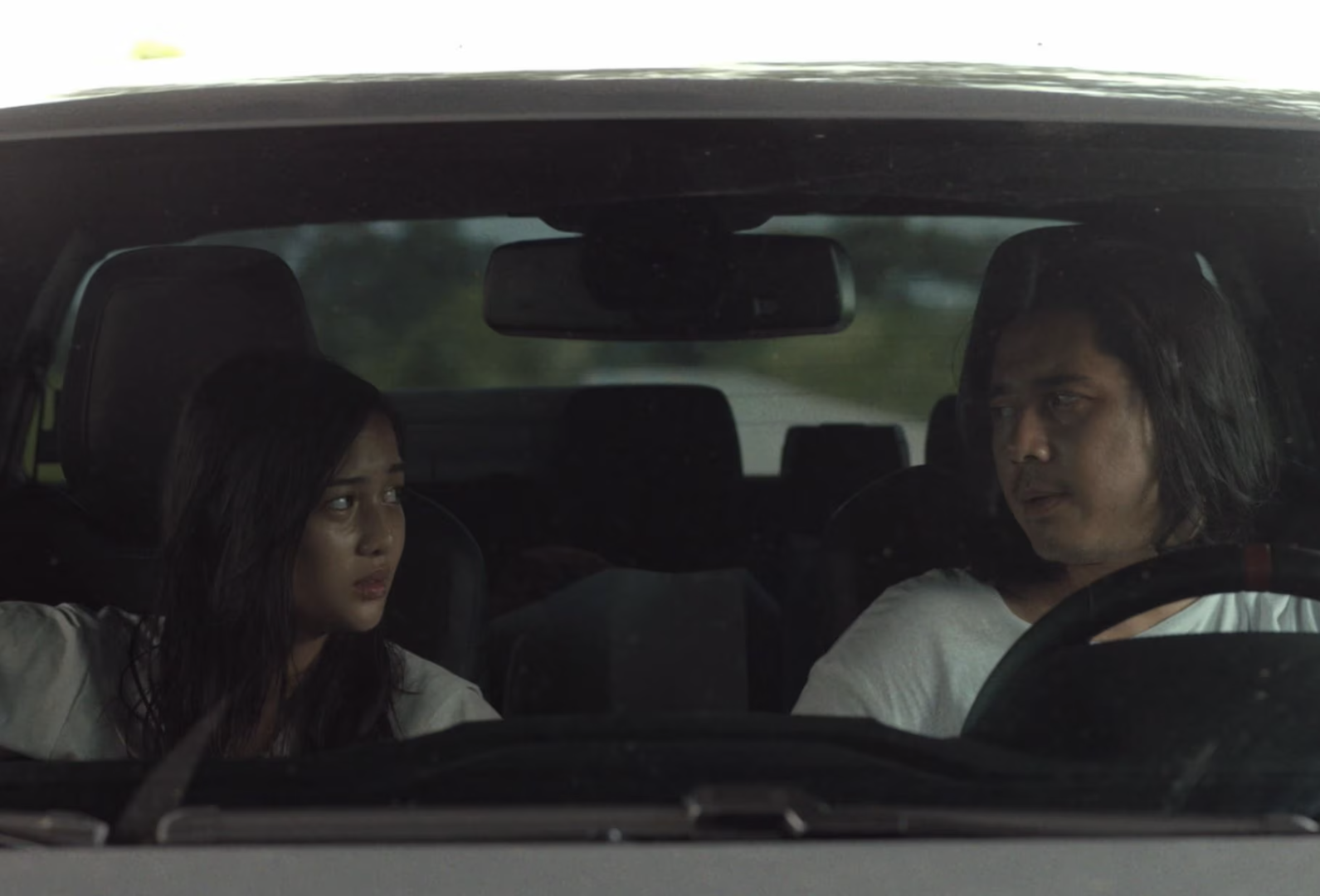
In the years since Fan Girl’s original release in the Philippines, its ultimate message and execution has become polarizing: is it enough that the film shows the corruption of a parasocial relationship into an abusive one, without offering much hope? Is its vision of justice actually constructive or disappointingly limited? No matter where you fall, it’s exciting that a movie can stir up these kinds of questions through a bizarre dynamic between characters, in a place that’s clearly set somewhere between reality and delusion. The narrative is circular and frustrating for a reason—a constant push and pull as the titular fan girl keeps getting drawn back into the celebrity’s orbit—and the film only grows more disturbing with each repetition.

Set in 1970s Italian countryside, this is a quirky movie that’s full of plot twists.
Lazzaro is a dedicated worker at a tobacco estate. His village has been indebted to a marquise and like everyone else, he works without a wage and in arduous conditions.
Lazzaro strikes a friendship with the son of the marquise, who, in an act of rebellion against his mother, decides to fake his own kidnapping. The two form an unlikely friendship in a story that mixes magical realism with social commentary.
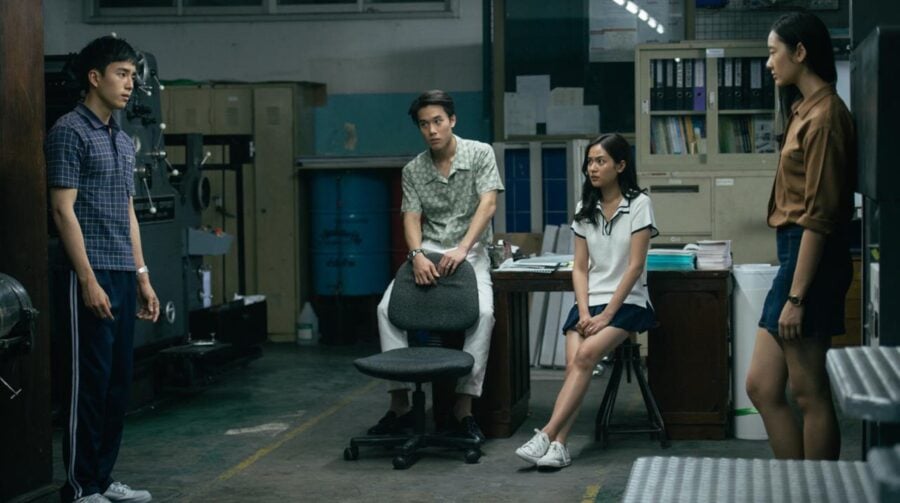
It looks like something you’ve already seen before: a student genius turns a simple high school cheating scheme into a full-blown, high-stakes heist. But layered with great acting, taut writing, and sharp observations about the ways in which education (and society in general) fails its students, Bad Genius turns a familiar premise into something genuinely exciting and impressively affecting. It’s everything you want a caper movie to be: smart and thrilling, with almost no moment to breathe, and of course, peppered with characters you can’t help but root and be nervous and excited for.
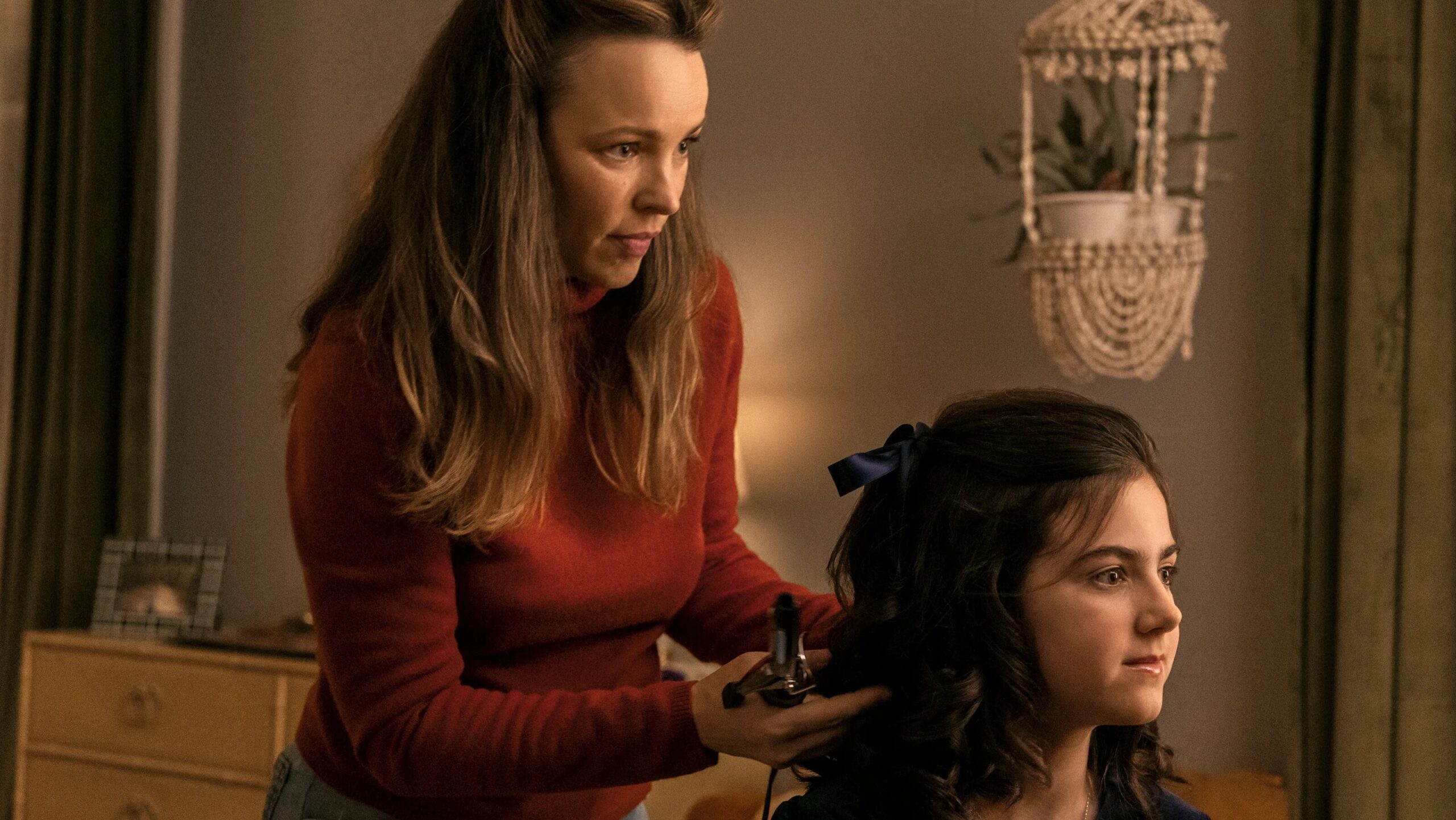
That this film, an adaptation of a beloved classic and girlhood staple for 50 years and counting, is able to retain the same power, charm, and wisdom as the source material by Judy Blume is impressive in and of itself.
Director Kelly Fremon Craig (Edge of Seventeen) turns the must-read novel into a must-see film, as urgent and relevant as ever in its frank portrayal of feminine woes and joys. Buying your first bra, getting your first period, losing a friend, doubting your faith, seeing—really seeing—your family for the first time, and knowing in your heart what you stand for…these are some of the thorny requisites of womanhood, and Craig navigates them with a bittersweet ease that never feels pandering nor patronizing. Like the book, the film honors this young person’s big feelings by centering them in a sprawling story that involves other characters, who are just as fleshed-out as the lead. Rachel McAdams deserves special mention for turning in a sweetly nuanced performance as Margaret’s mother Barbara, an artist attempting to balance her domestic role with her career goals.
The film may be 50 years in the making, but it tells a timeless tale that will continue to hold the hands of teenage girls for generations to come.

Watching Love at First Sight, there are times you catch it almost falling into eye-rolling clichés, like when Hadley loses Oliver’s number or when their first kiss is interrupted by someone suddenly opening the door. But the film’s self-assured and self-aware charm subverts conventions and saves it from being just another cheesy rom-com you’d sooner skip on Netflix. The statistic-heavy narration by Jameela Jamil manages to be both amusing and romantic, and casting Jamil as an omnipresent chameleon who is fate-personified is an inspired move that helps the film move along smoothly. Though they lack sensual chemistry, Richardson and Hardy are individually, abundantly charming. It’s hard not to be moved by their stories, as common as they may be in movies like this. Love at First Sight is fluffy and familiar, but it is also the sort of heartwarming fare you’ll want to watch again and again, especially at Christmastime, when the movie is set.
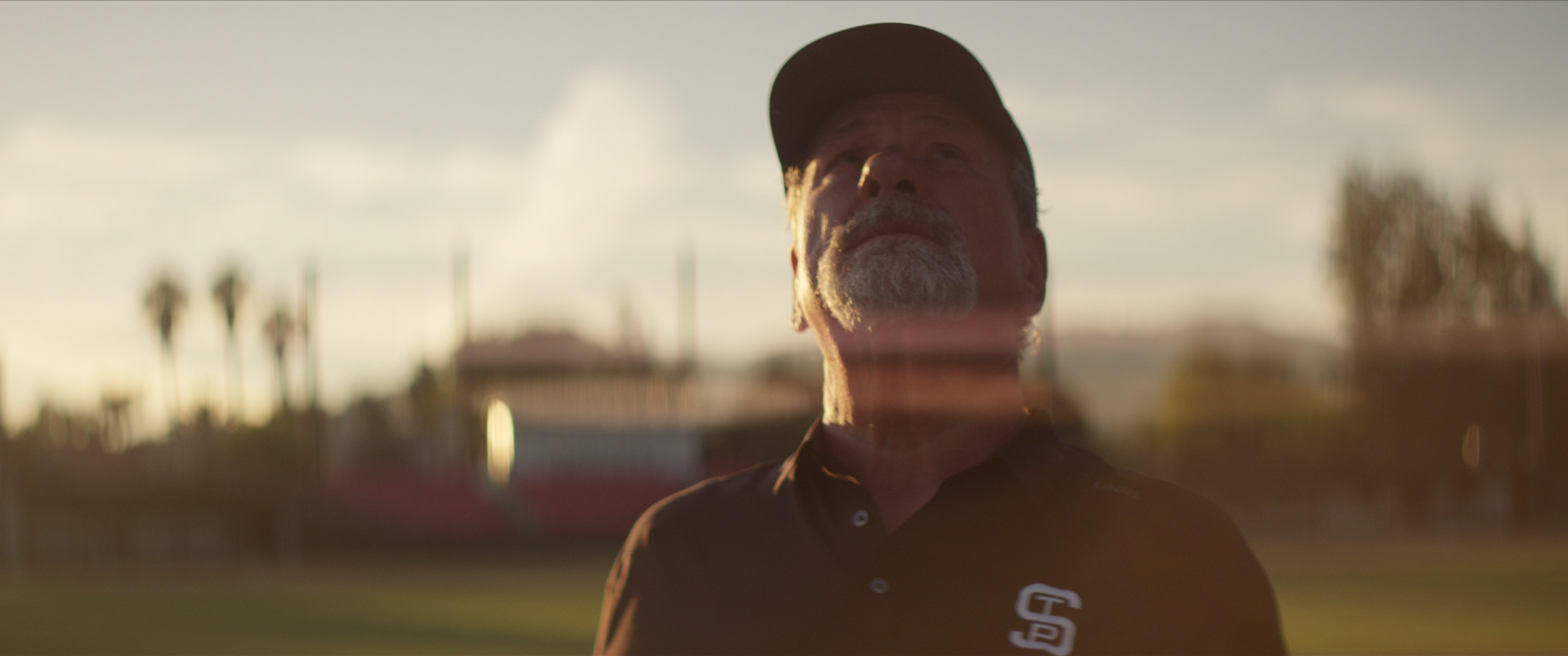
You don’t need to know a lot about baseball to appreciate The Saint of Second Chances. It has enough going on to keep you hooked from start to end, beginning with Jeff Daniels’ inimitable voice as the narrator and Charlie Day’s inspired casting as the younger Veeck, all the way down to the Veecks’ fascinating ties with American sports history and Mike’s inspiring and heartwarming second-chance philosophy. It all gets a bit too much at times, as if the filmmakers themselves were overwhelmed with their abundant material and creative decisions, but it’s executed with so much care and love that it seems as if this is the only way it could’ve come out: a wonderful mess.
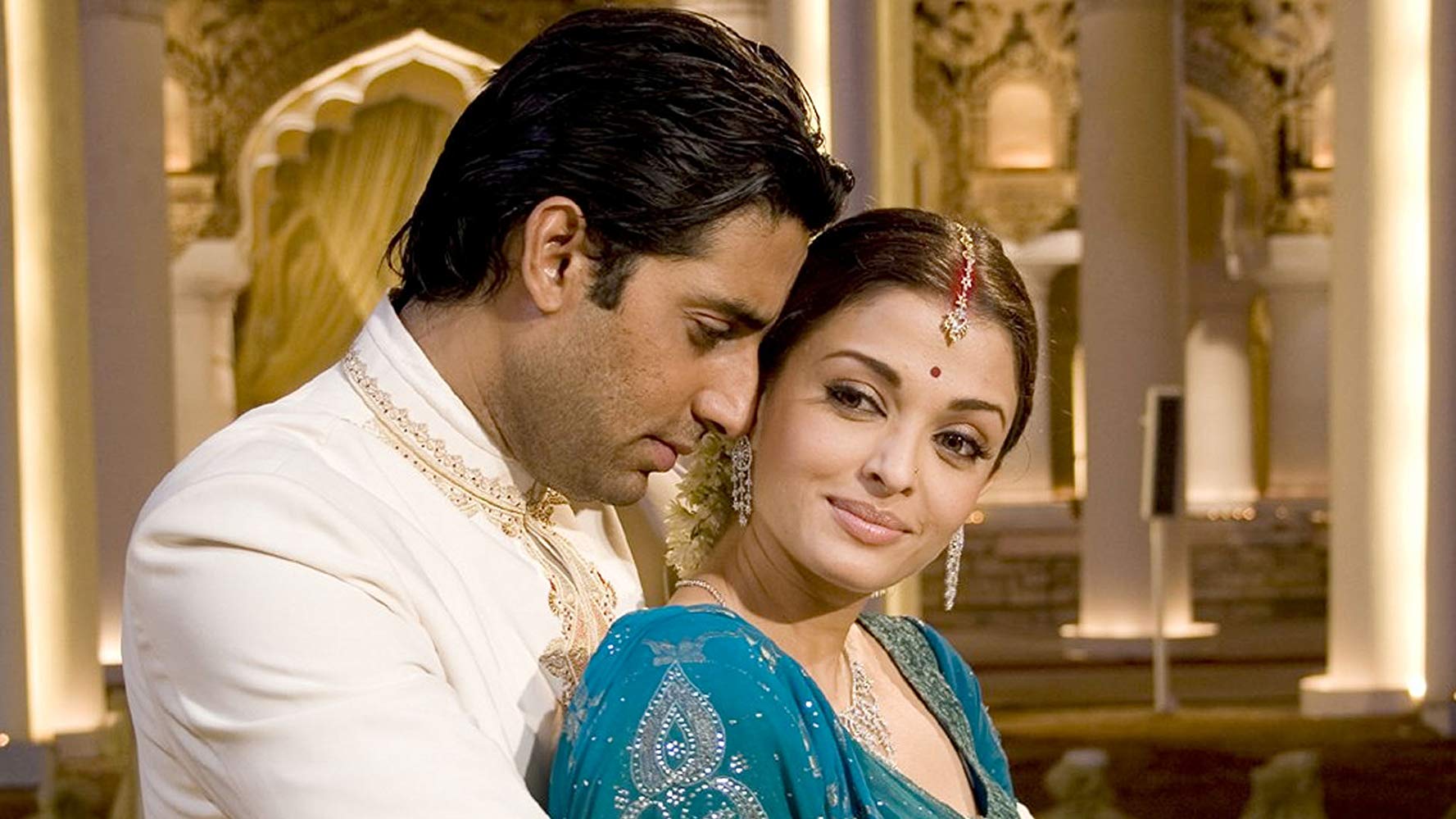
When a man does things so different that it shifts the industry of an entire nation, but gets accused of shady business practices to get there, it can be tricky to create a compelling narrative to depict a complex man. It’s probably why Guru, suspected by most to be a depiction of one such polyester textile tycoon, is said to be fictional. But it’s also why while the first half is a dynamic, inspiring rags-to-riches story, the second half struggles to create a cohesive message. Still, Guru holds excellent performances, especially that from the film’s leads, and in writer-director Mani Ratnam’s hands, these performances are captured beautifully, scored wonderfully, and weaved into such a striking and memorable drama.
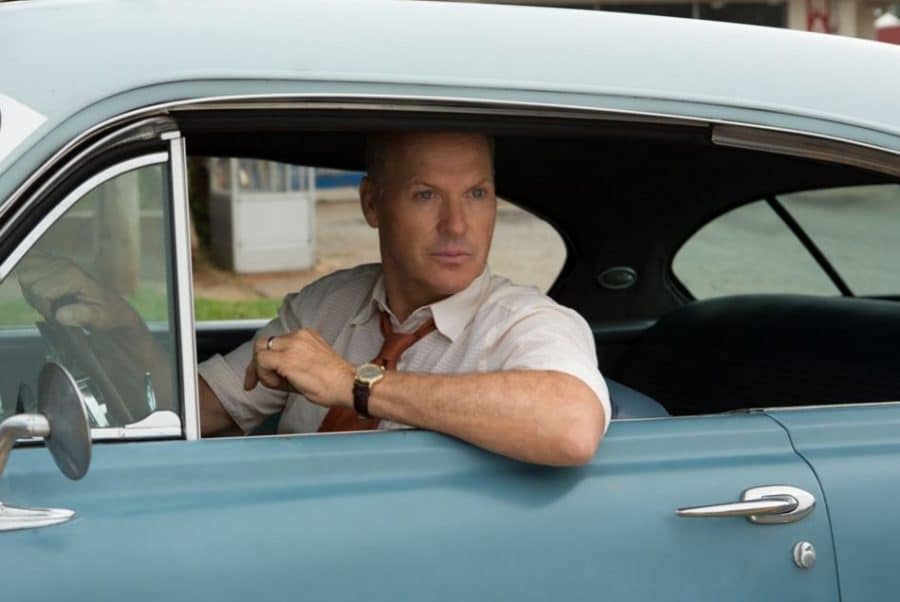
Michael Keaton is the founder of McDonald’s. Well, not exactly, because this movie is the story of how the man he plays, Ray Kroc, took over the company from two very innovative brothers named Mac and Dick. Played by John Carroll Lynch and none other than Nick Offerman, the brothers put up a fight while Kroc works to franchise the name and make it into a billion-dollar empire. It’s a real-life story of the pursuit of the American dream through both persistence and ruthlessness, retracing Kroc’s history from a struggling salesman to a fiercely pragmatic business giant. A crazy story and a cautionary tale of sorts, this is a movie that showcases America for what it is.
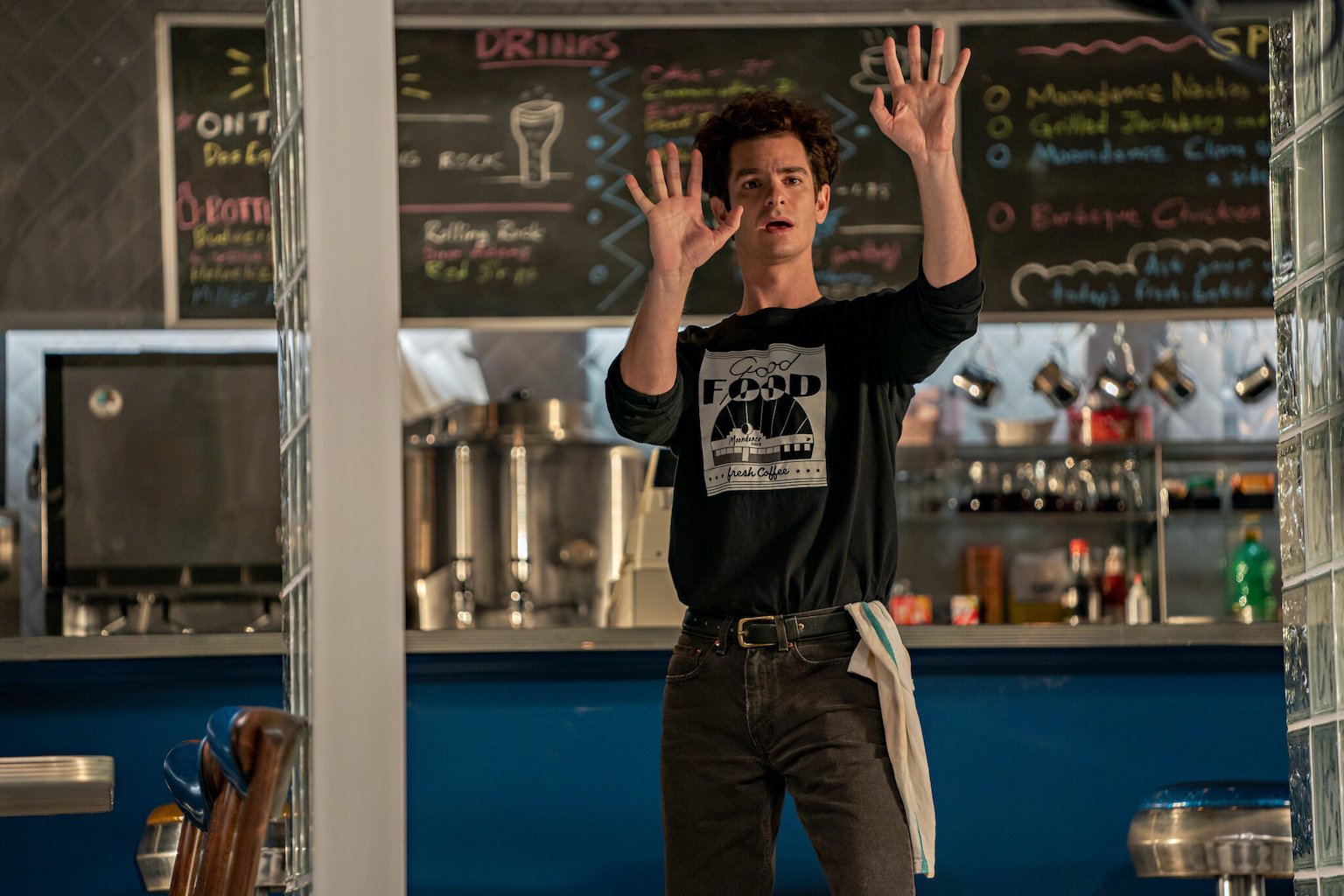
With its origins as a full-length rock monologue, it’s understandable if Tick, Tick… Boom! comes off as overly concerned with its protagonist’s personal anxieties and not the larger social and health crises happening right outside his door. But while it really doesn’t offer much insight into the AIDS epidemic, or even the art scene of 1990s New York, the helplessness that Jonathan Larson feels in the face of his own inability to save the world comes off as honest expression nonetheless. Andrew Garfield and a strong cast that includes Robin de Jesús and Vanessa Hudgens give purpose and energy to this somewhat messy character study that still manages to land its emotional beats.
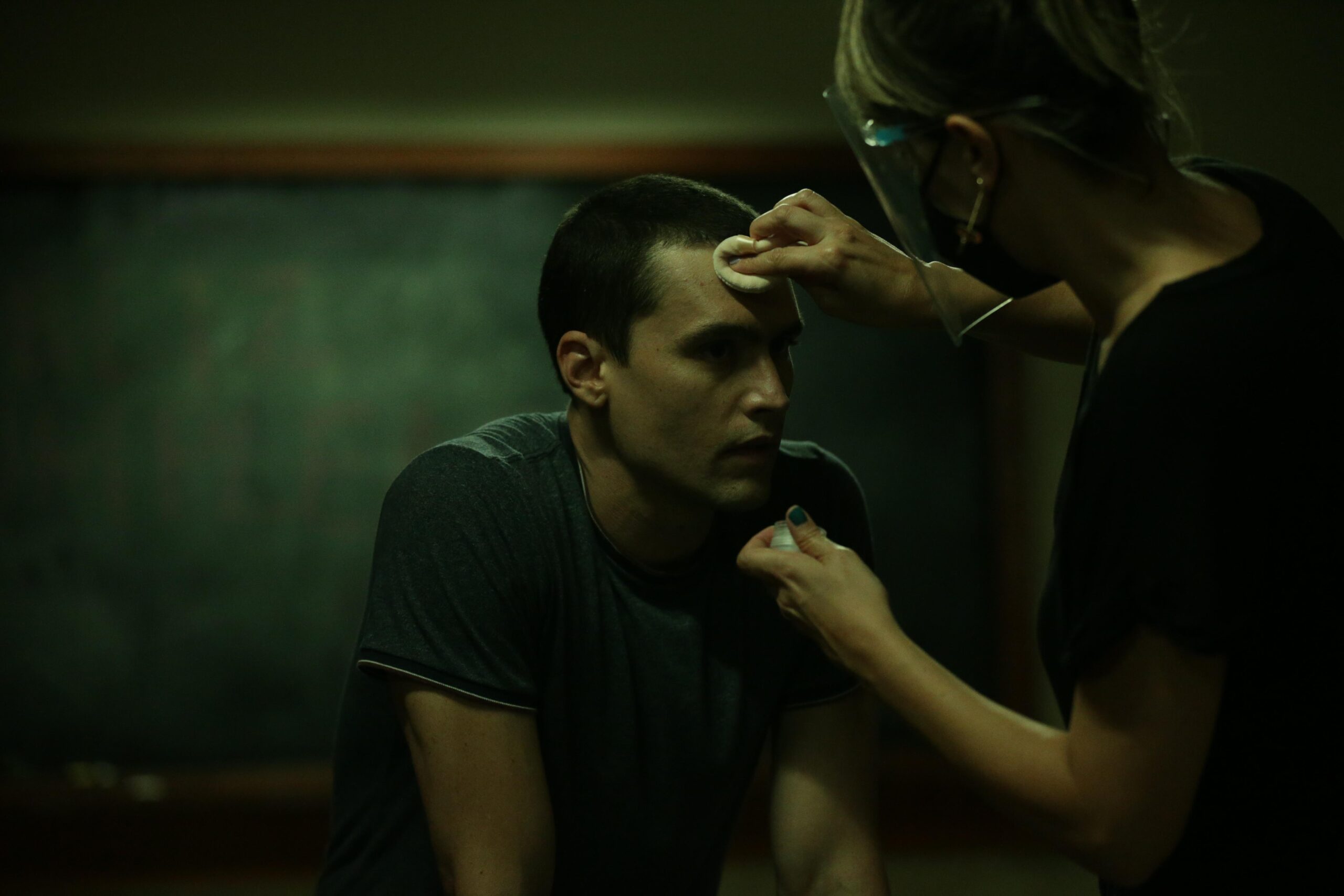
While we would like to think that we would do all we can to fight against a tyrannical regime, it’s not as easy as we think, and there are plenty of consequences that we wouldn’t foresee, living in relative peace. Diego Vicentini’s debut feature is a portrait of Venezuelan dissidents forced to flee the country, expanding on the short he made five years previously to flesh out the double lives most exiles go through– the angry yet hopeful protests they left behind in their homeland, and the peaceful, yet guilt-ridden, traumatized lives they now lead in another country. While it’s easy to expect certain moments, especially for people familiar with the country’s situation, Simón nevertheless was a film that needed to be made in order to shed light on this issue.
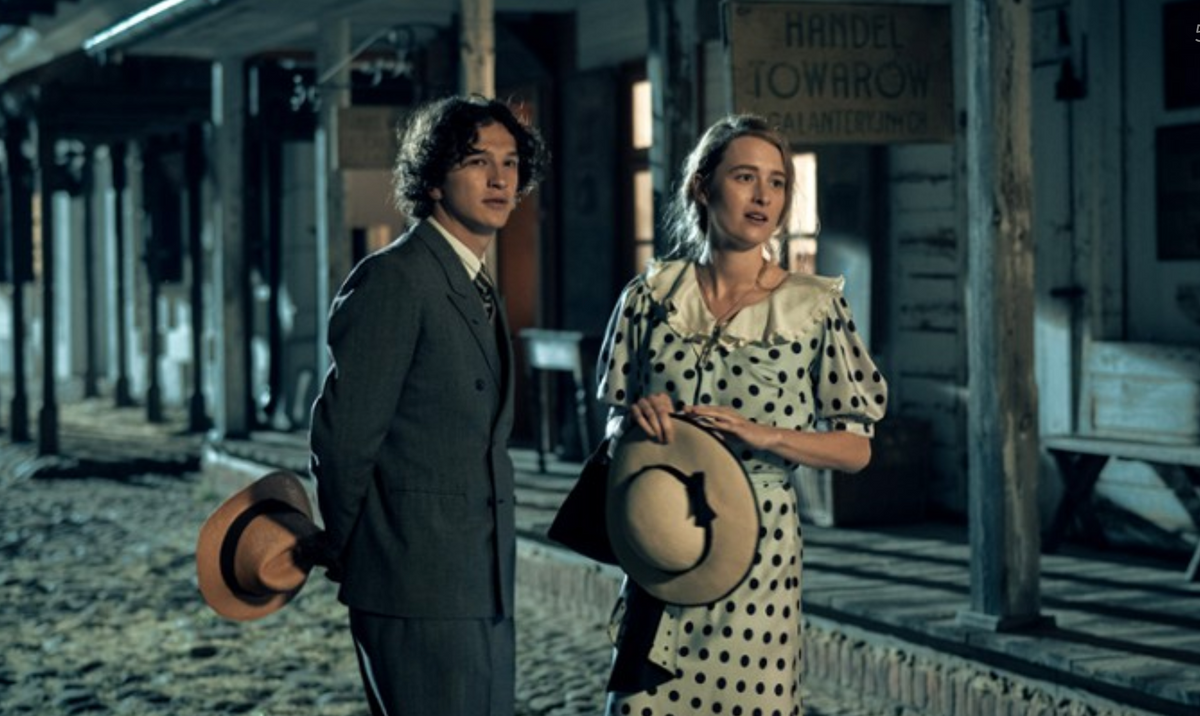
After two adaptations, with the 1982 version considered a Christmastime classic for Polish families, Forgotten Love can seem like a redundant take on the iconic Polish novel. With twenty more minutes, it seems like the new Netflix adaptation could only improve its take through better production design, and sure, it certainly delivers that pre-war aesthetic through period-accurate costumes, props, and sets. However, Forgotten Love takes a more streamlined approach to the novel’s plot, through changing certain character choices. Without spoiling too much, some choices paint certain characters in a better light, while other changes prove to add an entertaining twist, such as the humorous way the villagers defend Kosiba. Znachor takes the 1937 story into the present, bringing a new generation through the emotional journey of the cherished Polish tale.
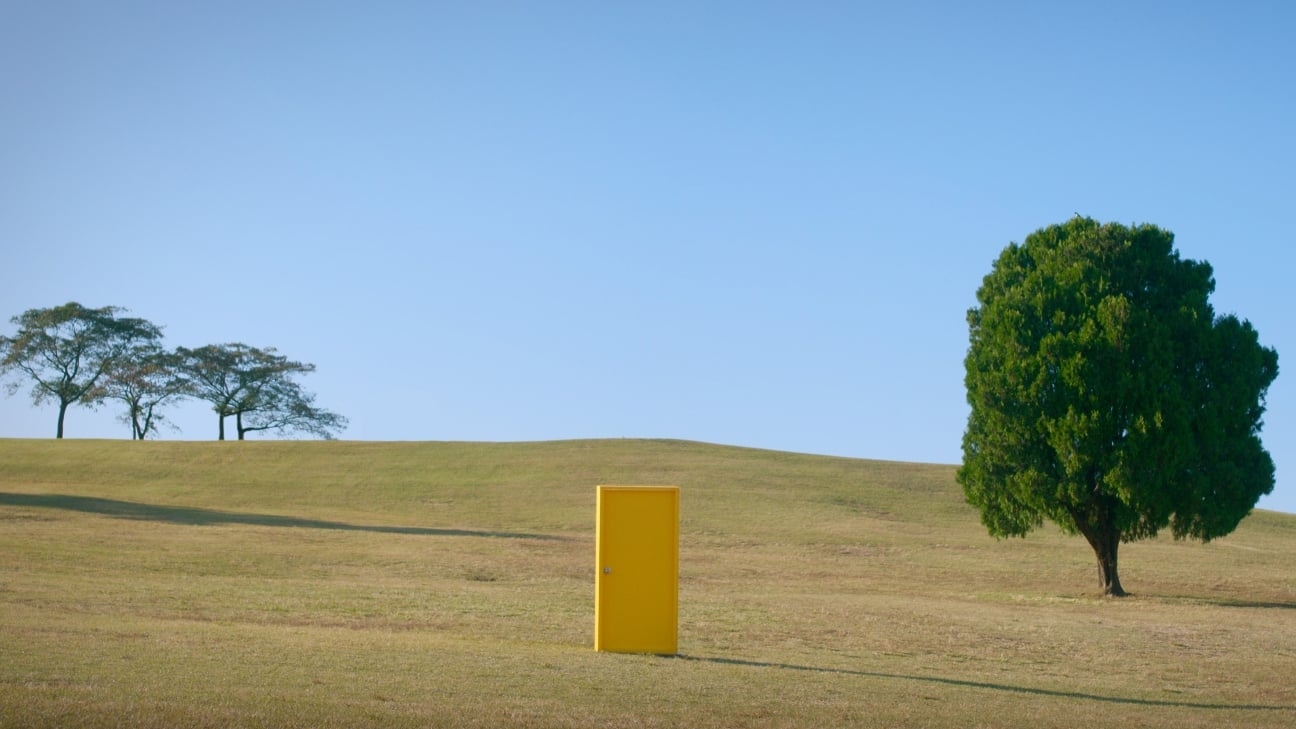
Given a budget from Netflix to make a documentary on Korean film, some would have chosen instead to make one for big Korean filmmaking personalities like Academy Award winner Bong Joon-ho, who is featured here. However, director Lee Hyuk-rae instead creates Yellow Door, a love letter to the ‘90s film club that inspired a generation. The warm way each member tries to remember the club made decades ago, and the handy, almost cheeky, animations makes it feel like we’re there in the club with them, just listening to friends reminisce about the way they obsessed about film, even if it wasn’t the major they were studying in. It’s so nostalgic and sentimental, and in shifting its focus, it celebrates the lovely experience of finding a community of like-minded people that’s just obsessed with film as you are.
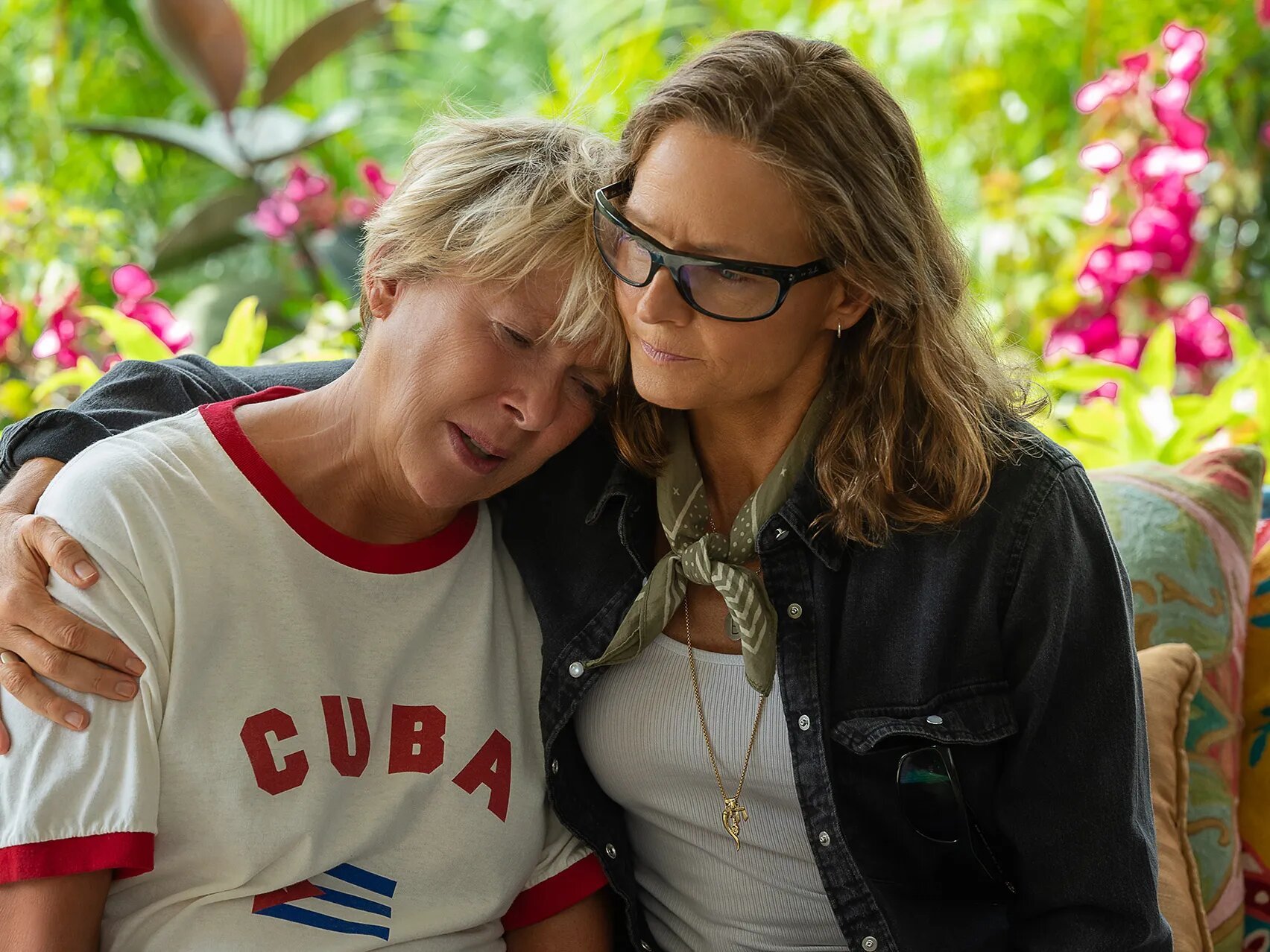
After winning Oscars for their documentary work, filmmakers Elizabeth Chai Vasarhelyi and Jimmy Chin make their narrative feature debut with Nyad. The move to narrative fiction isn’t a monumental jump for the director duo, whose cinematic documentaries (among them Free Solo and The Rescue) play like nerve-shredding action thrillers and intense human dramas. Nor does Nyad’s subject — another extreme feat of human daring and endurance — make this feel a million miles away from their most famous works.
The most obvious departures from the directors’ documentary strengths — Nyad’s flashbacks and hallucination scenes, for example — do sometimes highlight their newness to narrative filmmaking, however. These scenes feel shallow and therefore disconnected from the movie’s otherwise deeper treatment of its subject, just as the performances dip into outsized cliches at times. Mostly, though, Nyad manages to float above the trap of trying too hard to be an inspirational sports drama thanks to its confrontation of Diana’s prickly personality. This flips the film’s perspective onto that of Diana’s team (including her coach and former girlfriend, played by Jodie Foster), who ultimately suffer the consequences of her stubbornness. That refusal to submit to hagiographic impulses gives the film a documentary-like edge of truth, making the rousing moments here feel genuinely earned.
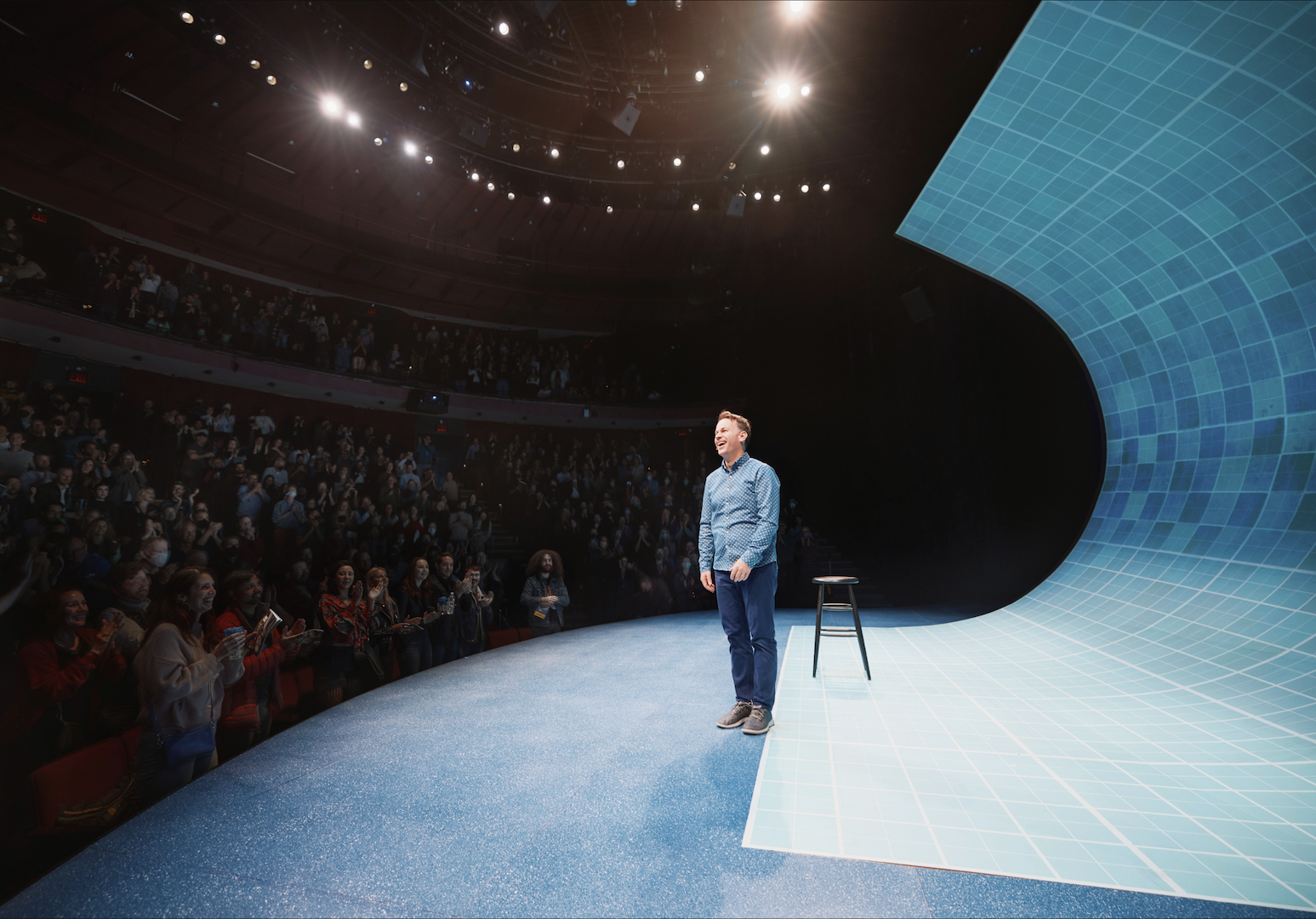
Many comedians use humor as a way to ease into more serious subject matter, though there always exists a risk that a comedy special can skew too far down the silly or the self-reflective route. Mike Birbiglia has come about as close to the perfect balance as possible, in this recording of his one-man Broadway show at the Vivian Beaumont Theater. Key to this is the fact that Birbiglia tells one very cohesive story throughout these 77 minutes, frequently branching off to other humorous anecdotes but always returning with a pensive self-consciousness to the real possibility of him dying sooner than he’d want.
This filmed version of Birbiglia’s show doesn’t give a full idea of its multimedia qualities (Birbiglia occasionally has words and images projected onto the curved screen behind him, which he also physically interacts with), but the comedian’s sincere style of storytelling more than makes up for the lack of audiovisual tricks we’re permitted to see. And don’t get it confused: this is a very funny stand-up special, whose jokes always come from the most unexpected places—it also just happens to contain some truly moving moments that come out of nowhere, but make total sense alongside all the laughter.
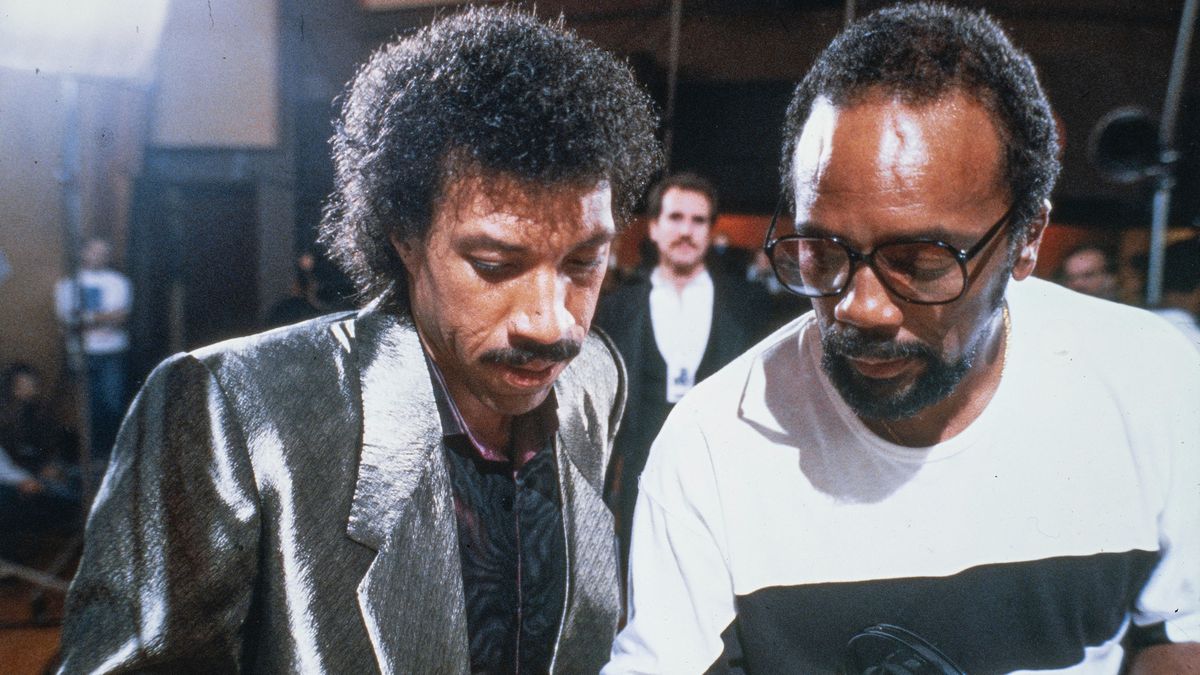
We Are the World is a charity single created for African famine relief. It was a smash success– it inspired plenty of other charity singles and already has a TV documentary about it. But The Greatest Night in Pop reveals new behind-the-scenes footage with a home video flair, intercut with interviews from those who were in the booth on that fateful day. The anecdotes about that night might have already been said elsewhere, but director Bao Nguyen manages to capture the energy in the room, peeking into the emotions of the various personalities that helped shape the song. It’s an intriguing, if straightforward documentary, and it’s certainly a treat watching the decade’s best voices collaborate to make this one track.

The fantasy of being able to have the body you once had is impossible in real life, but we can watch it play out in fiction. While previous depictions of this idea rightfully point out ageism and how much worse people treat the old, Miss Granny also celebrates the wisdom and experience that could only come from the years Oh Mal-soon has gone through, through an engaging script and the quirky performance of Shim Eun-kyung. It’s so funny seeing people taken aback, surprised, and astounded by old Oh Mal-soon in her young body, but what makes it work is the way director Hwang Dong-hyuk introduces her to us bit by bit, crafting a character that at first glance seemed to be a rude and controlling grandma, but is actually a woman that didn’t get to enjoy her youth due to the sacrifices she made for her loved ones. Miss Granny makes the case that there are timeless things that we can return to and appreciate, but there are also things that we’re willing to let go of our youth for.
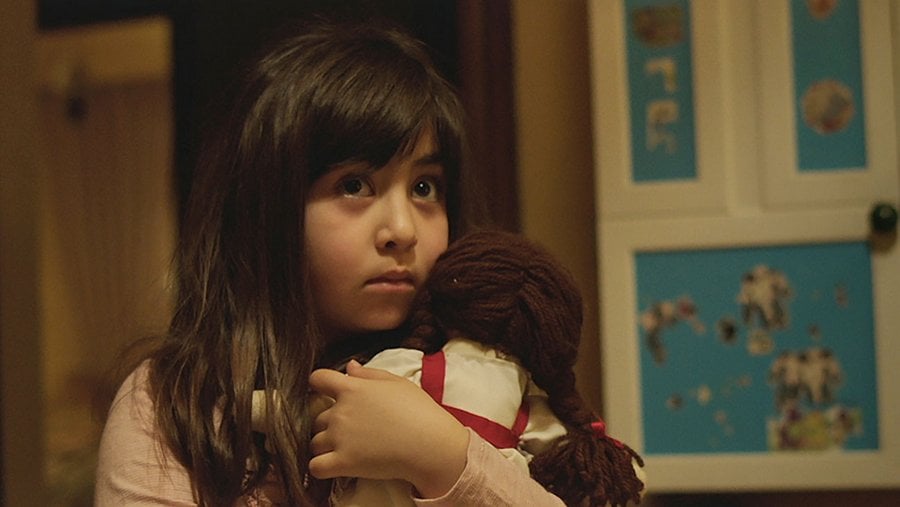
Horror movies have always been creepier to me when they play on our fear of the “unknown” rather than gore. Under The Shadow does exactly that. The story is based around the relationship of a woman, Shideh, and her daughter, Dorsa, under the backdrop of the Iran-Iraq war. As widespread bombings shake the ground beneath their feet, the two grapple with a more insidious evil that is faceless and traceless, coming and going only with the wind. The movie’s dread-effect plays strongly on feelings of isolation and helplessness. The scares are slow and it’s obvious the director takes great care in making every single second count and in raising the unpredictableness of the action. Like the bombs, the audience never knows when or how the next apparition will materialize. The former is always on the edge of fear, wondering what is no doubt there, but is yet to be shown on the frame. In terms of significance, Under The Shadow features too many symbolisms to count and will most likely resonate with each person differently. But one thing remains relatively unarguable: this is a wonderful movie.
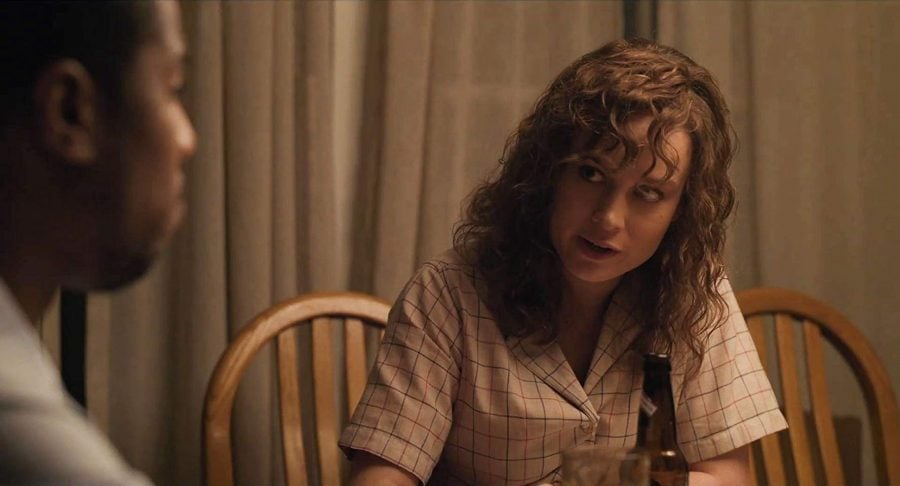
This drama is based on the true story of Bryan Stevenson, a young Harvard graduate who moved to Alabama in the 80s to defend wrongly accused prisoners on death row. He’s played by Michael B. Jordan, who brings to the surface the unstoppable determination and ambition of the character. Components that were necessary to go on such a difficult task, especially with the racist barriers at the time. Not to mention, no one had ever been released from death row in the history of Alabama at that point. An inspiring and well-acted movie, made by Short Term 12 director Destin Daniel Cretton.
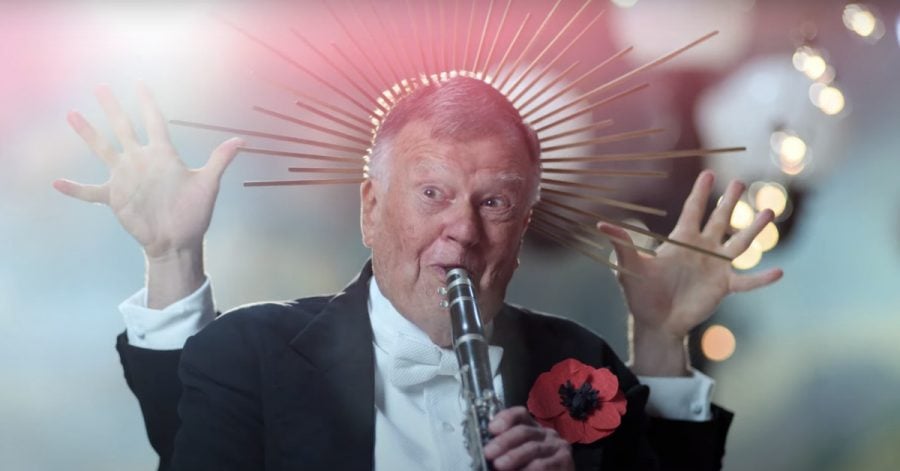
Dick Johnson Is Dead is a heartfelt and unconventional portrait of how one can live life to the fullest even in their darkest days. Kristen Johnson’s follow-up to the highly acclaimed documentary Cameraperson, Johnson shows that her skills are no fluke as she crafts a witty film where she masterfully balances surreal tonal shifts to create a compelling experience. While it does have a repetitive nature, the final thirty minutes are heartbreakingly comedic, and make this one worth a watch!
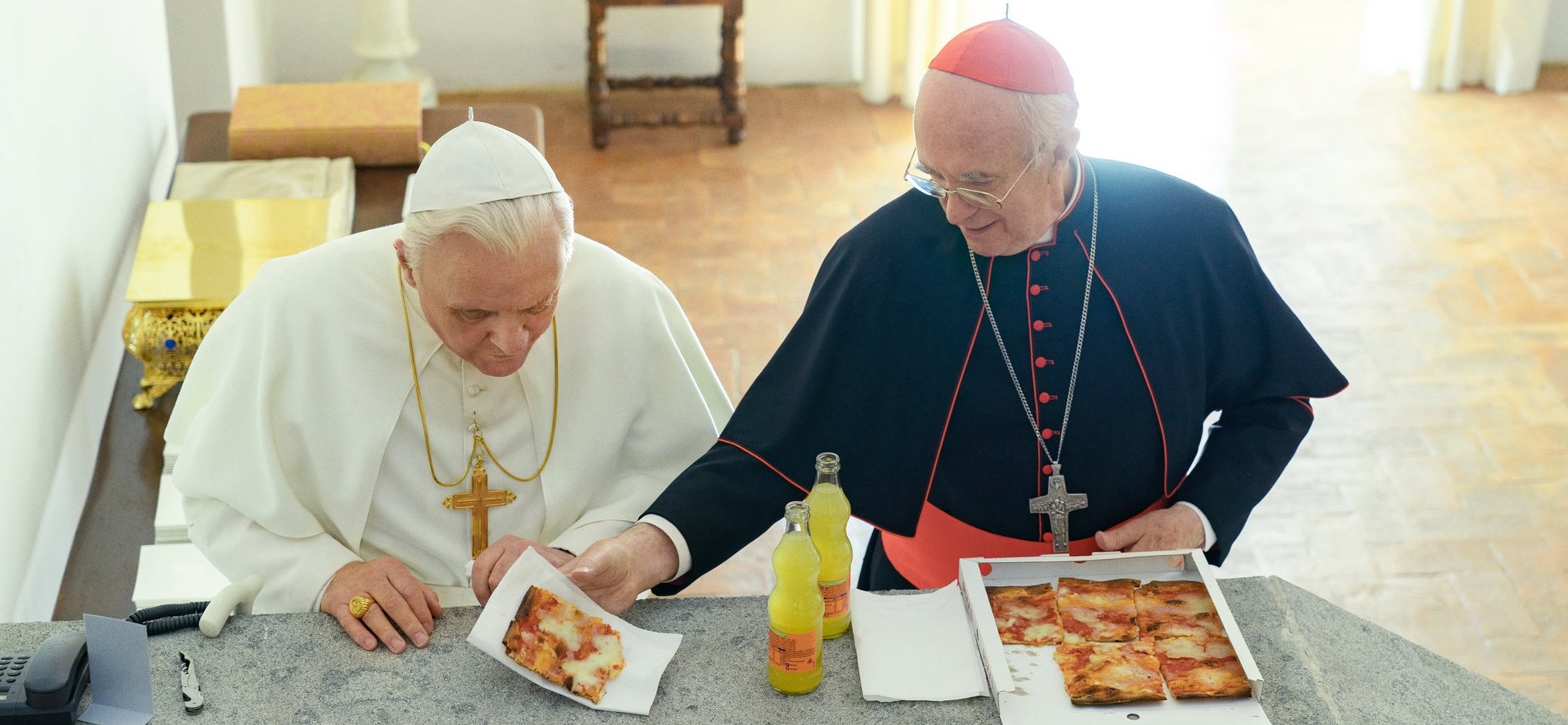
You wouldn’t expect two old men discussing God and politics to be deeply intriguing, but I suppose it’s different when you have Hopkins and Pryce leading the whole thing. Nothing overly dramatic happens between the two (those parts are saved for the flashbacks, which are just as compelling), but they manage to make every discussion, every point, and even every word feel heavy with the weight of their guilt and hope. These two are proof that good acting can be carried by the tiniest lilt in tone and shift in gesture. You don’t have to be a Catholic or be interested in God at all to appreciate the great performance and touching vulnerability at the heart of The Two Popes.
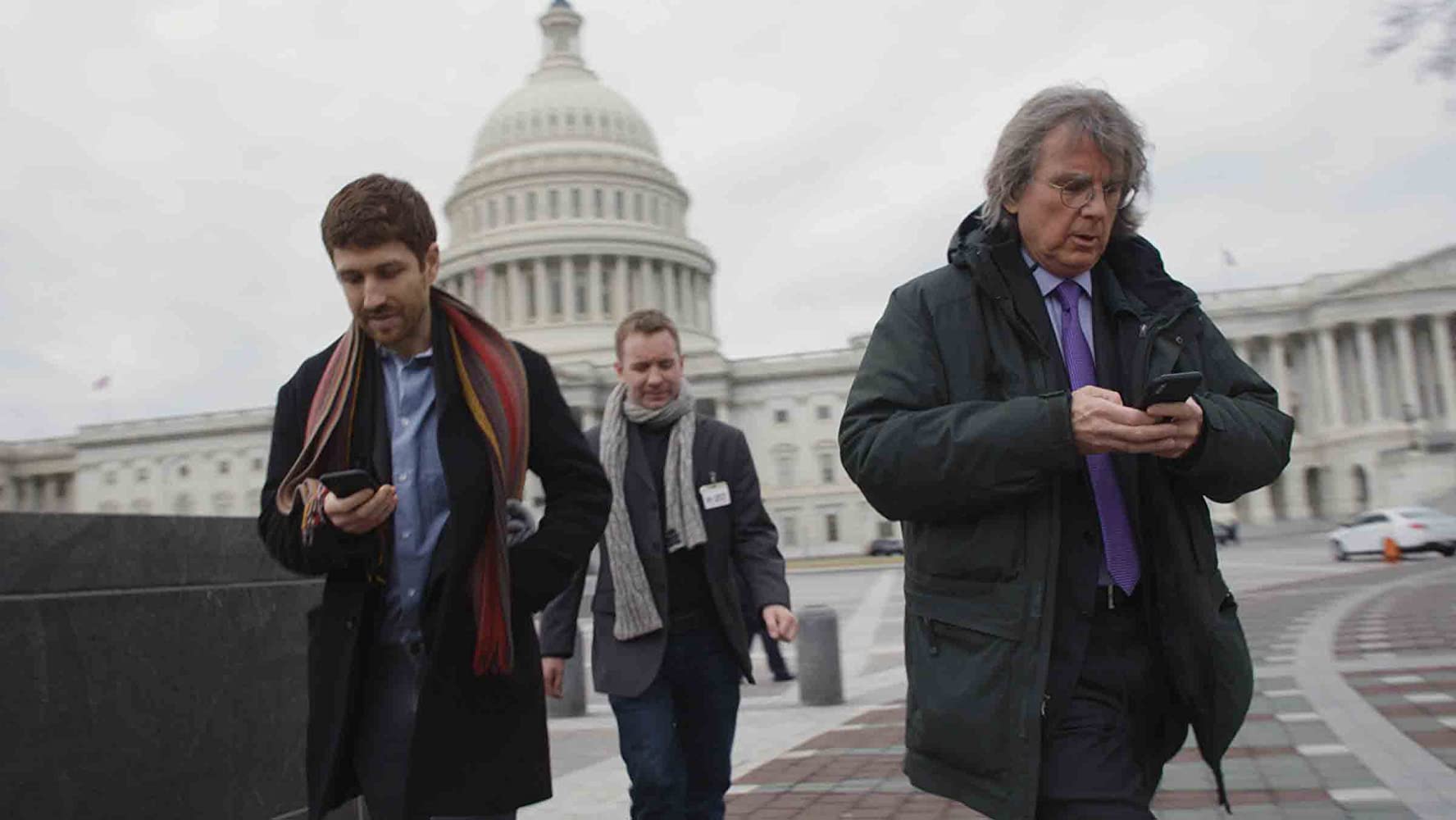
This new documentary is about the exact scale to which social media is harming us, as testified to by people from the industry: ex-executives at Google, Instagram, Facebook, and even the ex-President of Pinterest. All have left their companies for (incredibly valid) ethical concerns that they share here.
It’s a blend of interview footage and a fiction film that follows a family who feels more distant because of social media. This allows to see the implications of what the interviewees are saying in real life but quite frankly it also serves as a welcome break from the intensity of their words. How intense? One of them predicts civil war within 20 years.

The Swimmers tells the true story of sisters Yusra and Sara Mardini (played by fellow sisters Nathalie and Manal Issa), Syrian swimmers trained to compete at the Olympics. When their athletic goals and overall safety are threatened by the increasing presence of war, the girls decide to take a chance and migrate to Europe, where they hope to live out their dreams and reunite with their family someday.
The Swimmers is a touching family drama that does right to center on the love and tension between the siblings. Yusra and Sara’s relationship perfectly encapsulates the envy and resentment but also the deep love and loyalty that are present in every sister bond. It’s tender in these moments, but it can also be equally searing—as a refugee drama, it chillingly tracks the complicated and inhumane processes of fleeing one’s country for a safer future.
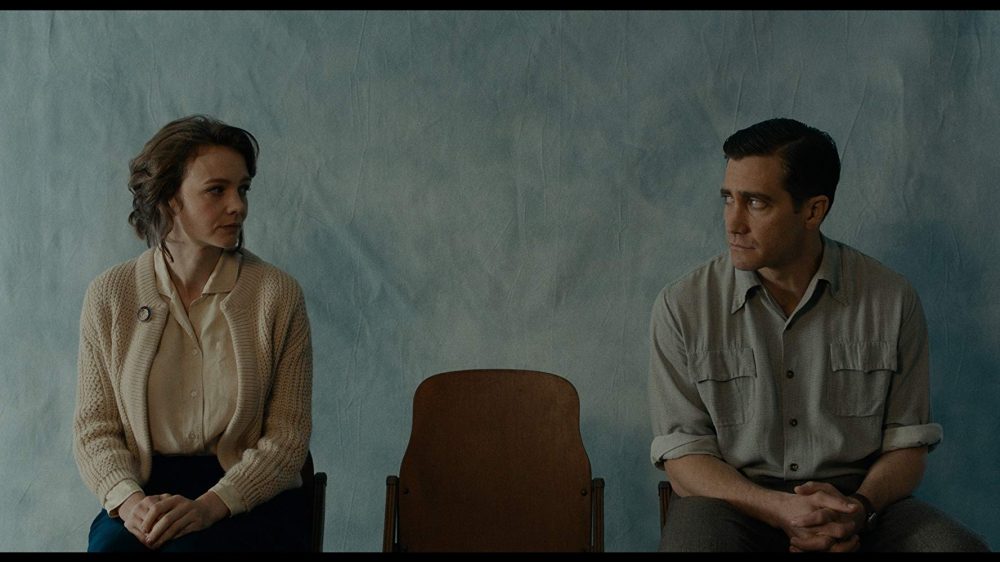
A powerful but quiet movie directed by Paul Dano and based on a novel of the same name by Richard Ford. It stars Carey Mulligan and Jake Gyllenhaal as a couple who move to a new town with their only child during the 1960s. Their relationship transforms after Gyllenhaal’s character loses his job as a butler and chooses to leave for a more dangerous profession, firefighting. This movie is about his wife’s response to this event and the implications of both parents’ behavior on their kid. There are no twists or turns, exciting action or plot; but Wildlife doesn’t need any of that. This moving story about a decaying family unit is portrayed in the sadness that comes with such events. The only joy comes from watching the outstanding (but expected) performances of the cast.
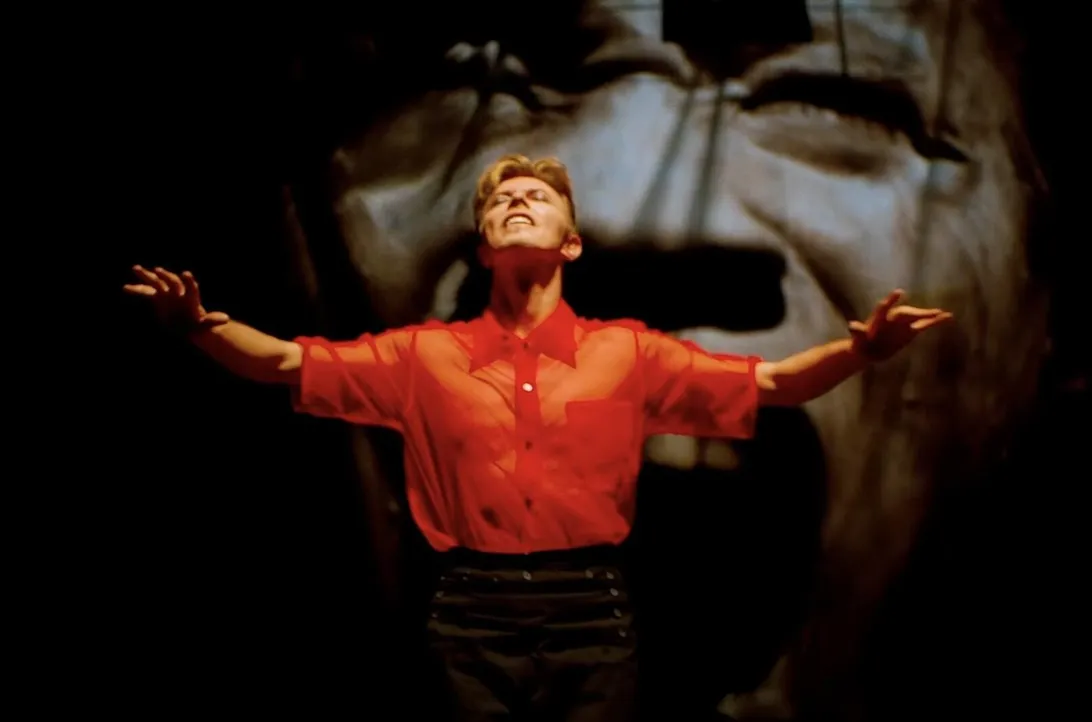
Forget everything you know about the music biopic. One-on-one interviews, chronological storytelling, silent moments with the subjects—Moonage Daydream isn’t that kind of movie. Just as David Bowie isn’t your typical pop star, this documentary about him, directed by Brett Morgen, forgoes the usual beats for something extraordinary and fun.
Moonage Daydream is a concert, a light show, and a masterclass in collage editing. It’s a feast for the senses, a fantastic neon fever dream that paints a picture of Bowie in his own words, drawn from archival footage, interviews, and concerts past.
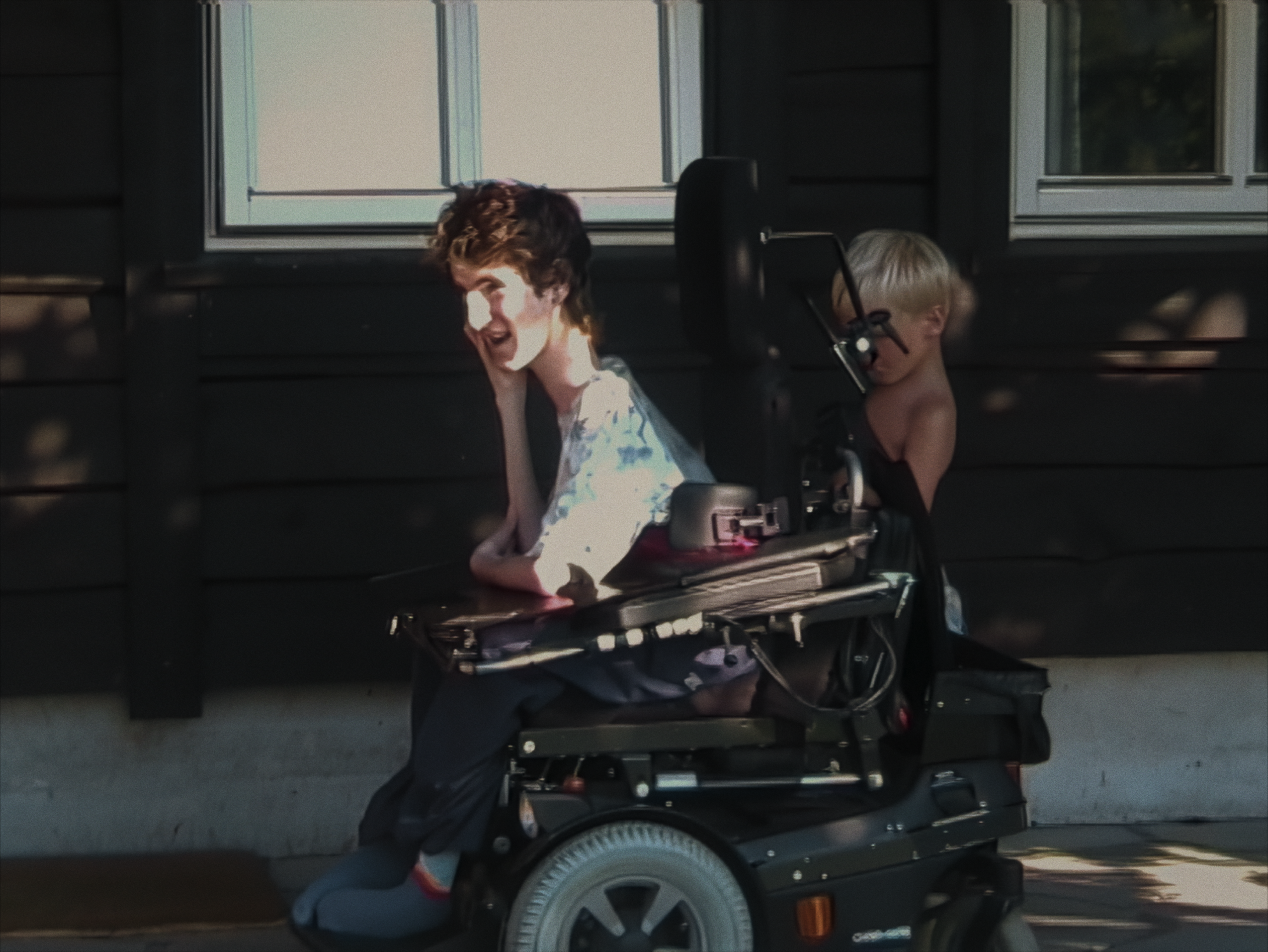
In the first twenty minutes, The Remarkable Life of Ibelin seemed to be quite unremarkable, with the usual way a biographical documentary would go, that is, loved ones waxing poetic about how great the dead person was in life. But the documentary takes this to introduce Ibelin the same way his parents discovered the online life Mats Steen lived. It’s a unique documentary, mixing in the usual home videos with the animated gameplay of the archived life Steen lived in Ibelin, but it’s grounded by, and somewhat co-created through the words Steen himself typed about his life as a disabled man, and the game history he shared with the community he formed online. The Remarkable Life of Ibelin ends up being quite a remarkable depiction of living online, that feels much more honest, human, and creative than the condescending or cautious narratives we’ve previously heard about the online world.
This groundbreaking documentary follows the USA Olympics sexual abuse case that made headlines in 2015. Through interviews with Olympians, their families, and investigative reporters, it’s also a documentary on the overall culture of abuse in gymnastics: sexual, physical, and emotional.
In one scene from the 1996 Olympics, gold medalist Kerri Strug has to run, vault, and land – all with a severe foot injury that was covered up by her coaches. She does this twice, limping between attempts and crawling off the mat on the second, crying. Meanwhile, her family, her coaches, the spectators – the World – is celebrating.
When she’s carried off, it’s Larry Nassar, the pedophile at the center of the documentary, who carries her.
Athlete A is groundbreaking exactly because it illustrates that the problem is not only with one doctor, or the 54 coaches who were also found guilty of sexual abuse, or the morally bankrupt leadership of USA Gymastics; it’s also about what went so wrong with society to see the abuse of young girls as cause for celebration.
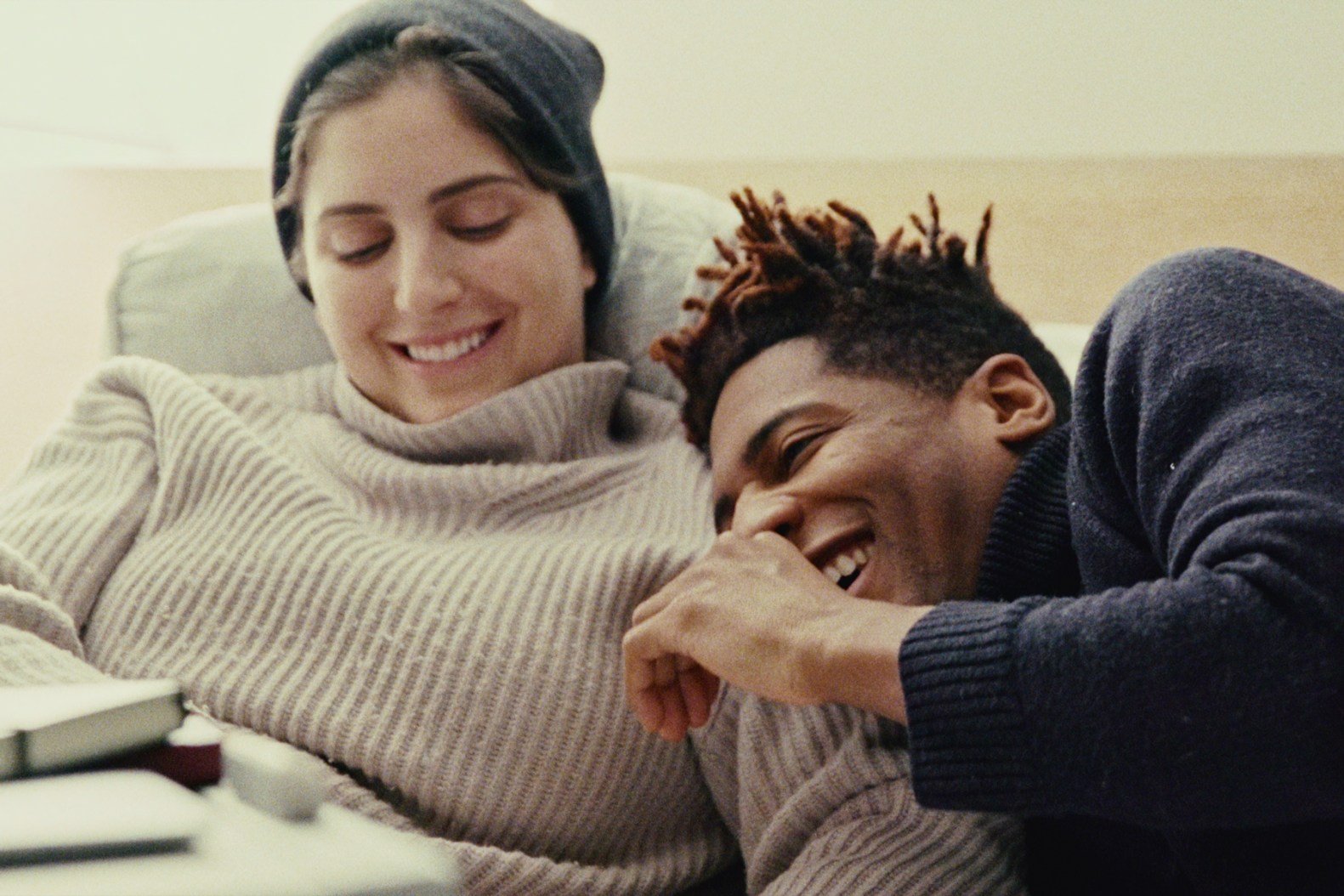
Art is a hobby for most people, but for musician Jon Batiste and writer Suleika Jaouad, art is part and parcel of this thing called life. Of course, it’s part of their work, and it’s how they make a livelihood, but it’s more than that– it’s almost a spiritual ritual they cling to, especially when Jaouad finds out that her leukemia has returned. American Symphony mainly depicts the creation of said orchestral work, but director Matthew Heineman translates the symphony into cinematic form, culminating in a performance played over the intimate moments between Batiste and Jaouad. It’s not just a documentary of a performance, but a documentary about art, about creation despite life’s pains, perhaps to survive life’s pains. It’s a powerful work that makes it easy to believe in art as imperative for life, and vice versa.
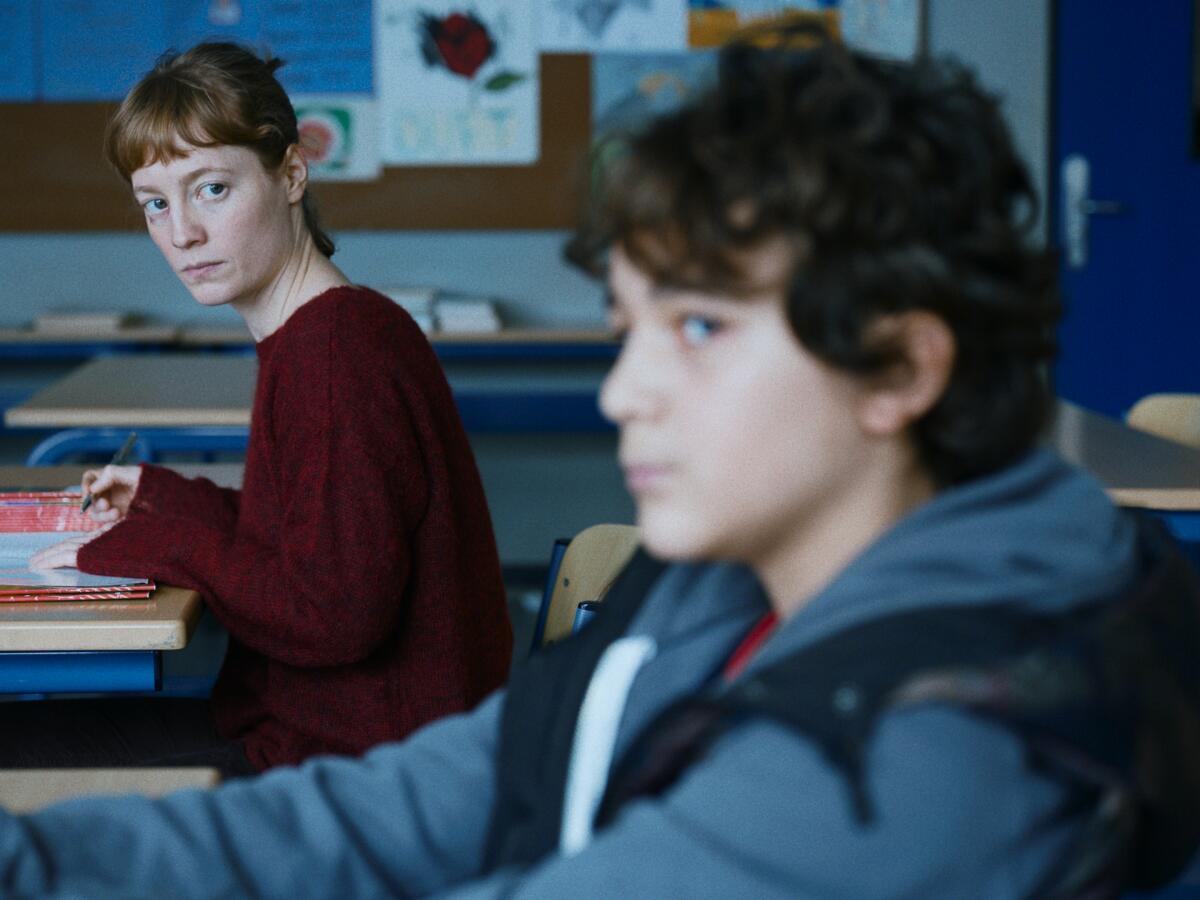
The Teacher’s Lounge is one of those movies where a simple misunderstanding is blown out of proportion, so much so that it causes the fabric of a community to unravel into chaos. Aided by a precise score, it ticks like a timebomb, with every second filled with so much dread and anxiety you have to remind yourself to breathe. It’s an impeccable and taut thriller, but it also works as an allegory about modern-day surveillance and authority. Director İlker Çatak gives the Gen-Z students and their much older teachers a level field where they struggle for control, and the result is both bleak and funny. It’s often said that schools are a microcosm of the real world, but nowhere is that more apparent than here.

